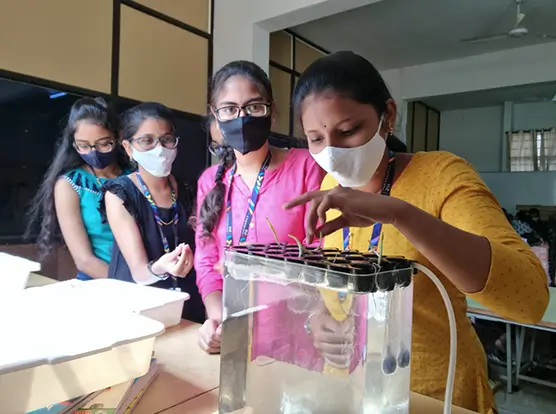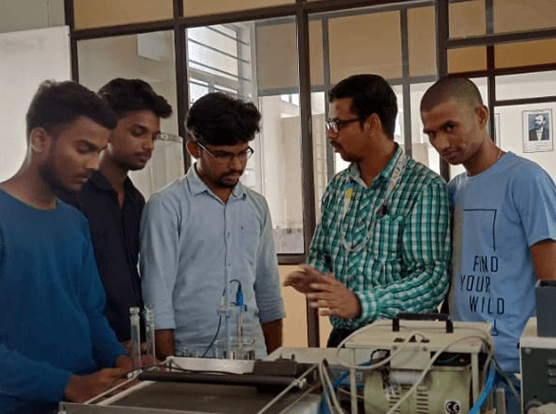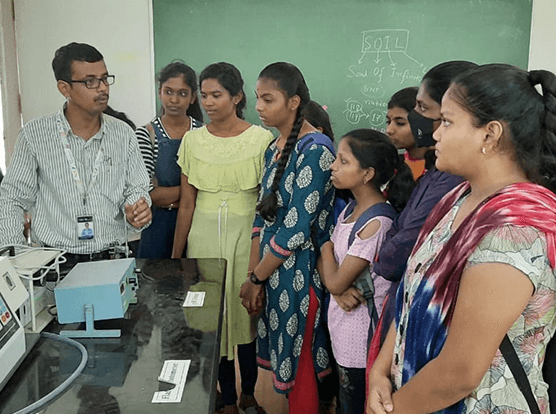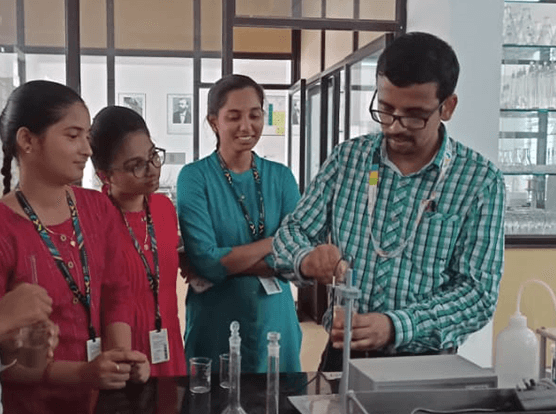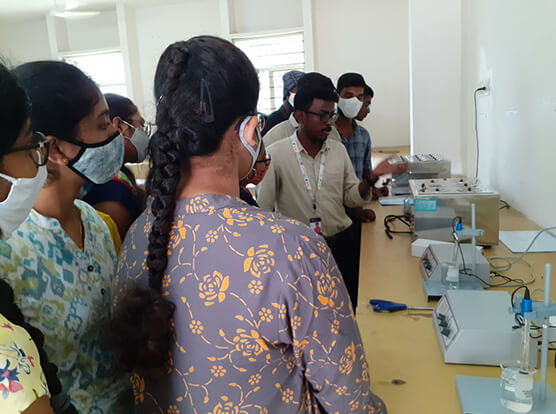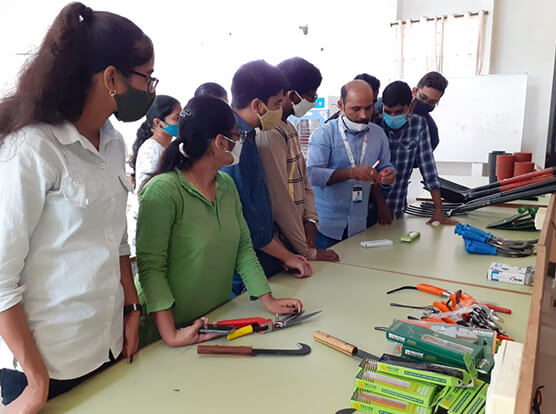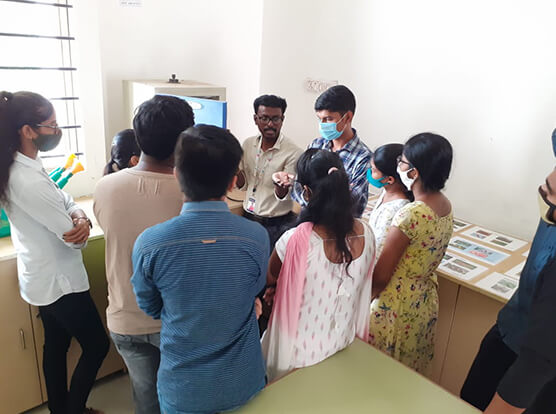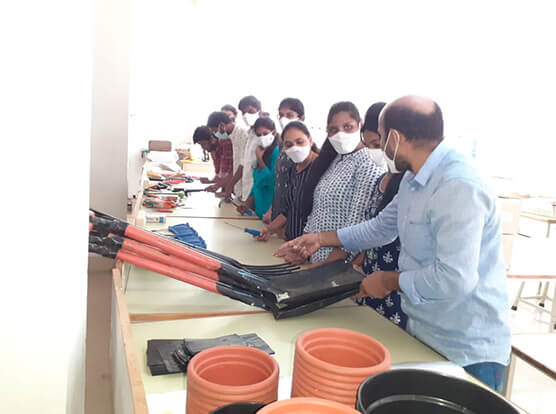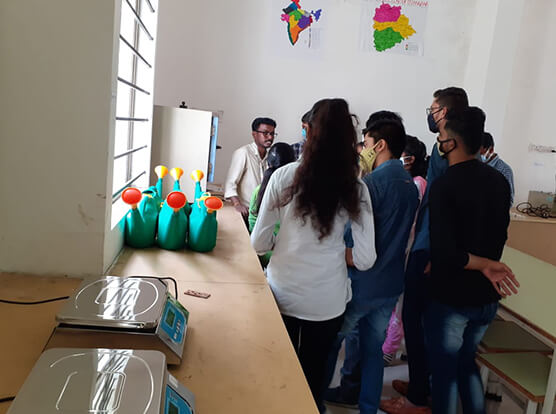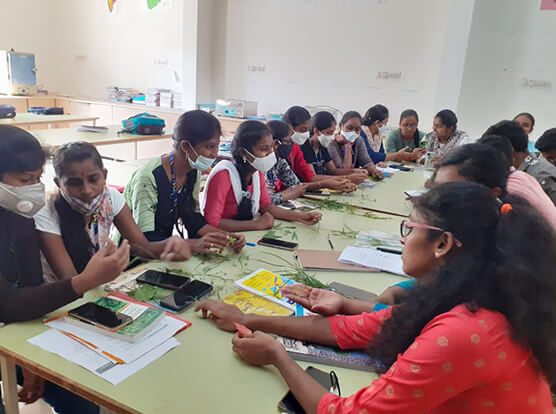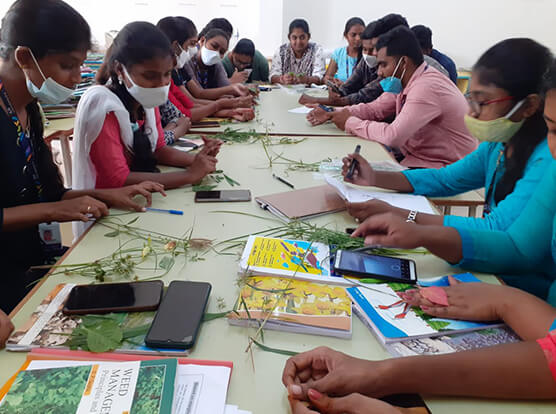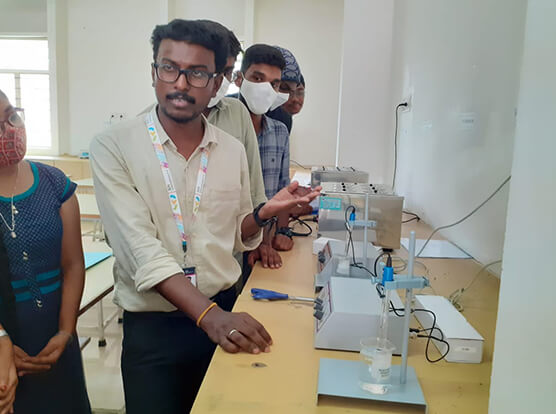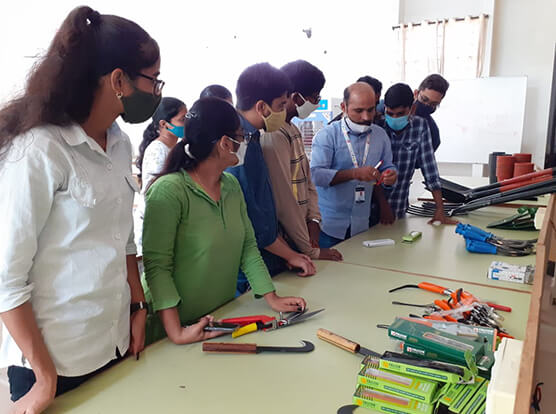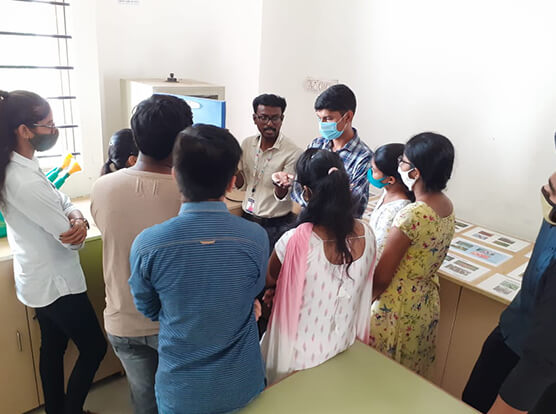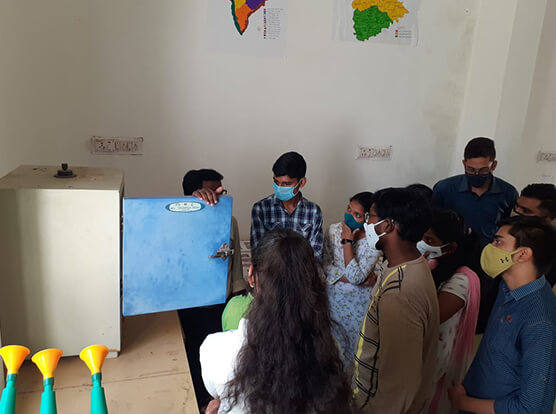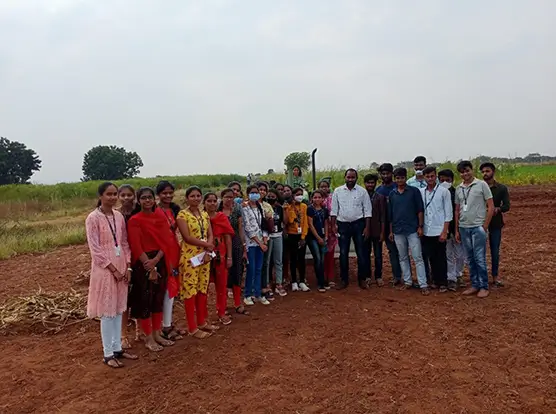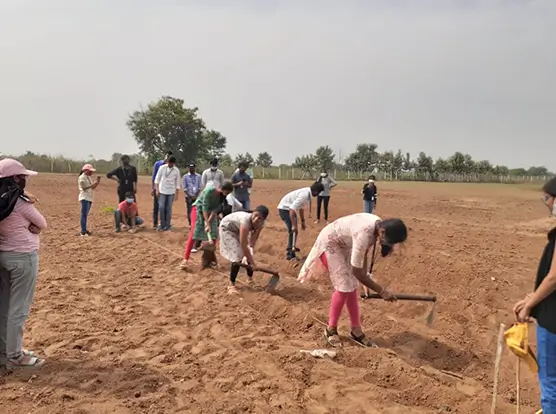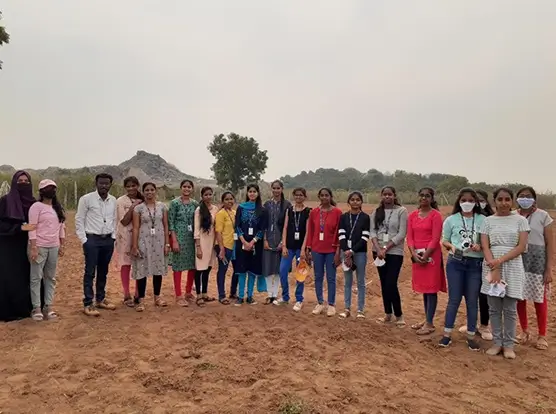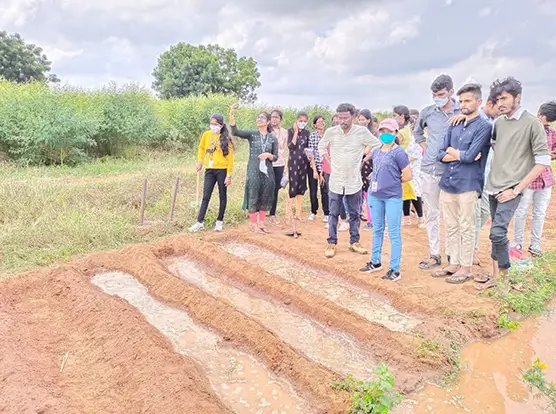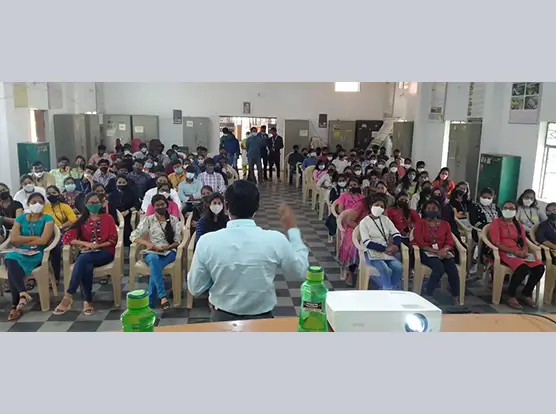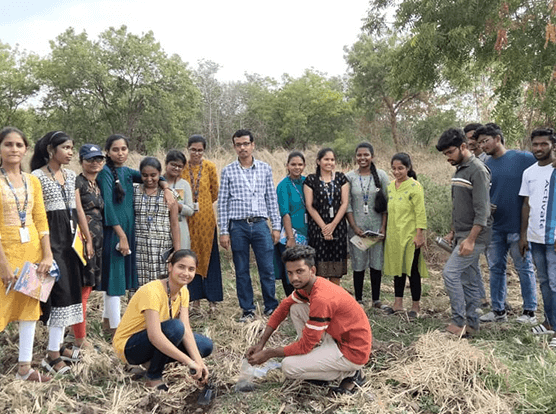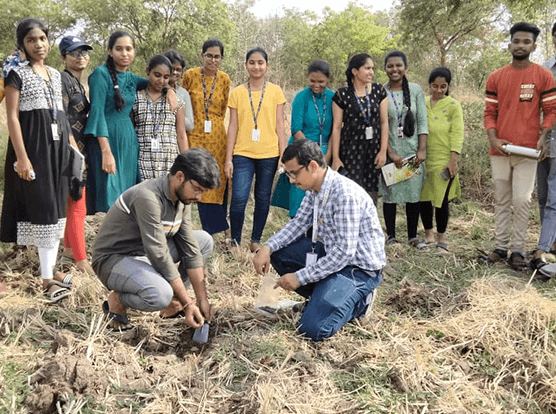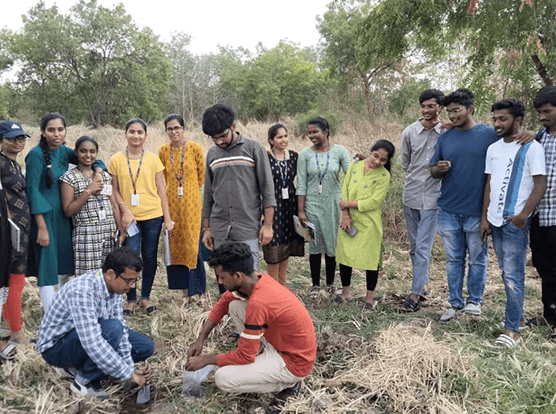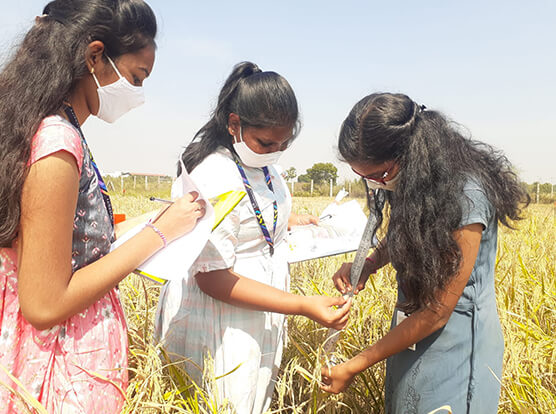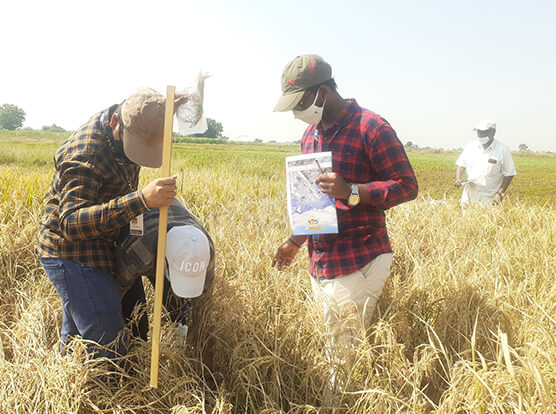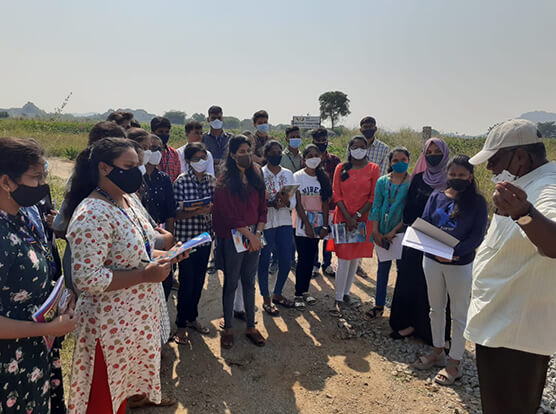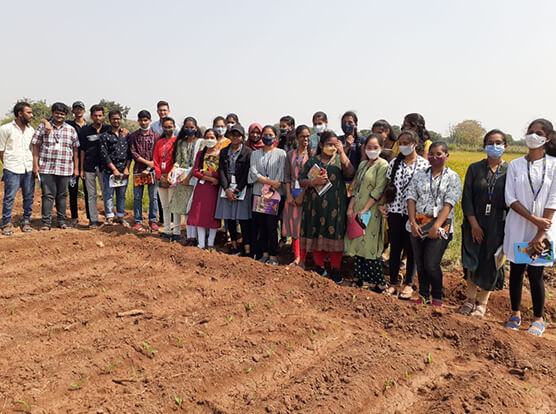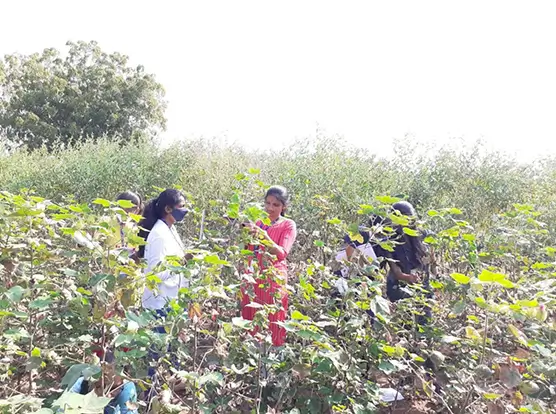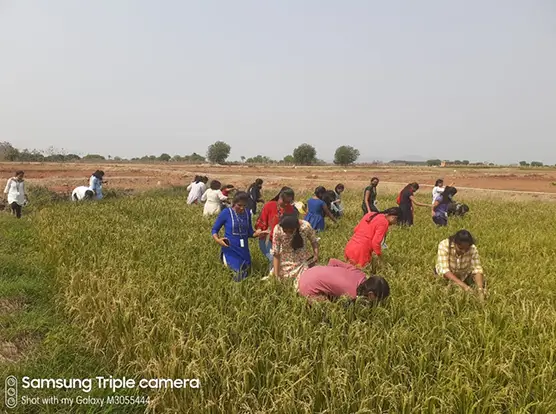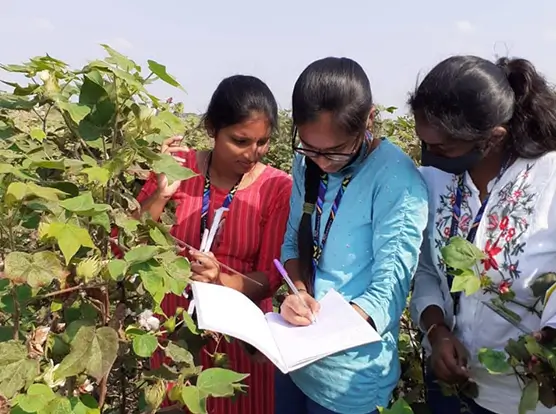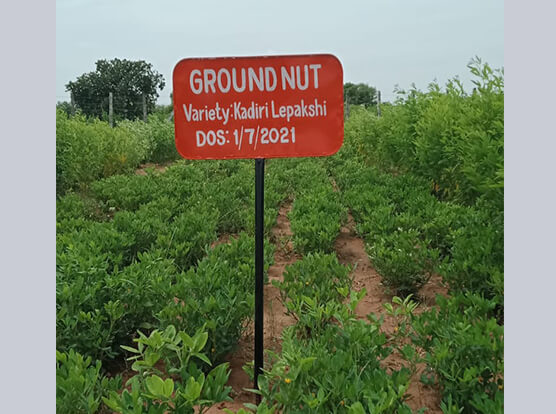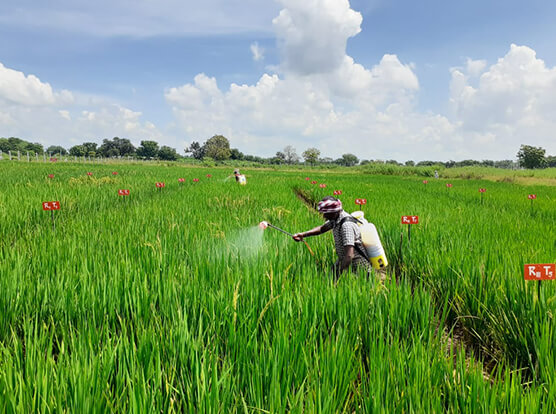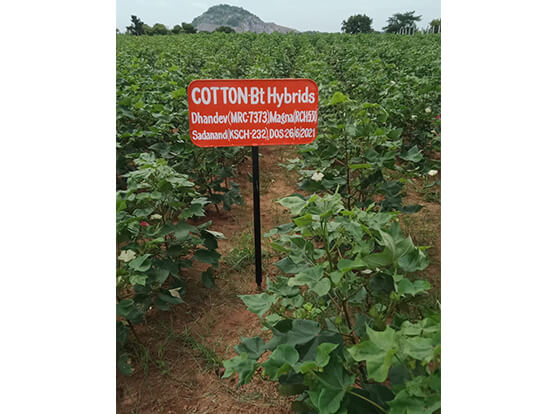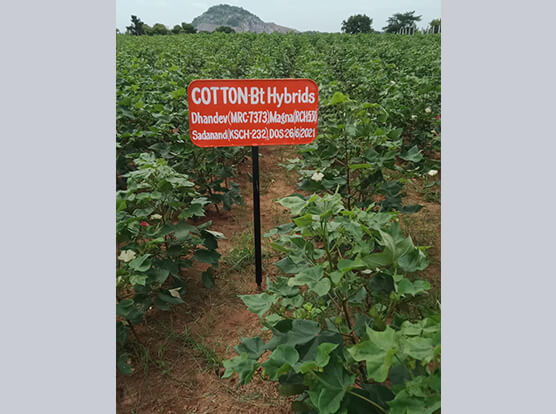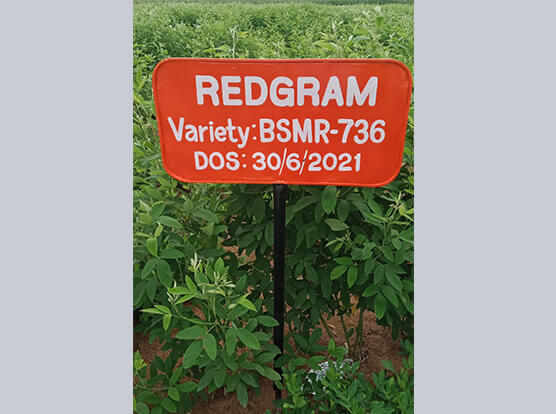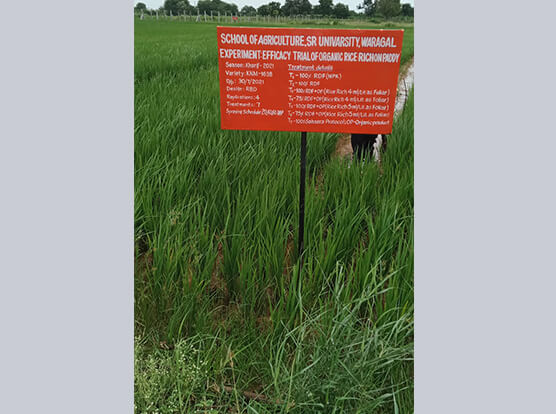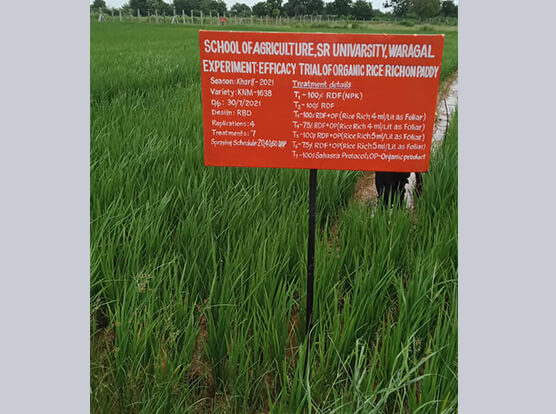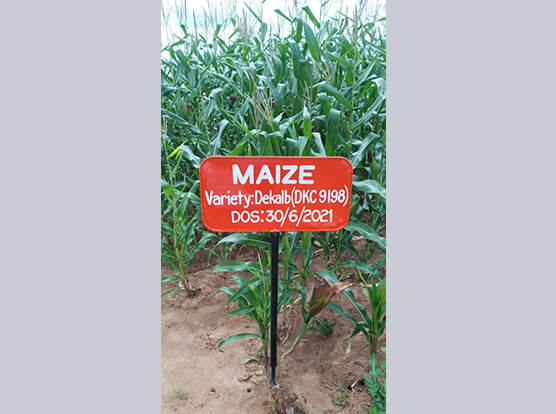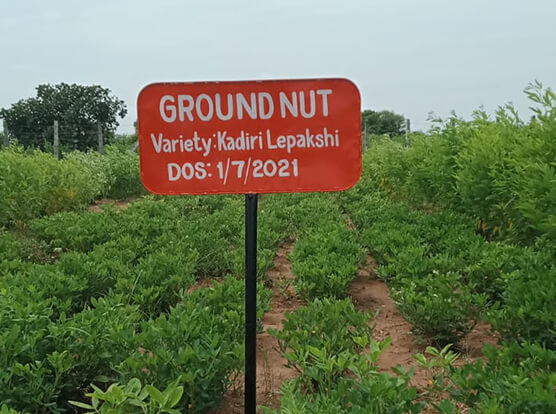Overview
Agriculture forms the backbone of Telangana state’s economy, at Warangal 50% of households engaged in farming and allied sectors. Blessed with a semi-arid subtropical climate and diverse soils, the region supports crops like Paddy, Cotton, Maize, Red gram, Chilli, Turmeric, and other Horticultural crops. To strengthen agricultural education and innovation, the School of Agriculture was established at SR University in 2020–21, offering a four-year B.Sc. (Hons.) Agriculture programme.
Spread across 24.09 ha at Hasanparthy, the campus features rainwater harvesting and wastewater treatment systems supporting field experiments and demonstration plots. Well-qualified faculty members lead teaching, research, and extension activities, supported by modern classrooms, laboratories, ICT facilities, and the area of 18.58 ha instructional farm equipped with a weather observatory, crop cafeteria, polyhouse, Shade net, hydroponics, vermicomposting, azolla, apiary, micro- irrigation, organic production units and orchard. Students gain real-world exposure through field and industry visits, and research projects, which integrates classroom learning with on-field problem-solving and farmer engagement. Graduates of SRU’s Agriculture program acquire comprehensive technical knowledge in crop production, integrated nutrient, irrigation, weed, and pest management. The program also emphasizes climate-resilient agriculture, agribusiness management, entrepreneurship development, and the application of modern smart agricultural technologies.
The School of Agriculture remains committed to fostering innovation, sustainability, and community development through quality education, applied research, and farmer-oriented outreach.
Dr. G. Bhupal Raj, Dean, School of Agriculture, has more than three decades of leadership experience in teaching, research and extension. He is retired as Director in Professor Jayashankar Telangana State Agricultural University, Hyderabad. Before joining as Dean, School of Agriculture, SR University, he worked as Director of Extension and PG Studies, M.S. Swaminathan School of Agriculture – Centurion University, Odisha and Dean of KBR College of Agriculture and Horticulture (Affiliated to ANGRAU), Andhra Pradesh. He has published 100+ research articles in reputed journals. He obtained twelve awards including two gold medals for significant contributions and guided four Ph.D. and ten M.Sc. (Ag) Scholars. He had international exposure, visiting US, UK, Thailand and China.
Students of the program will have an opportunity to work as innovative Scholars in Collaborative for Social Innovations (CSI) to develop new solutions for sustainable agricultural production. A student can also explore other interdisciplinary research centers @ SRU
Vision
To drive sustainable, smart agriculture through innovation, research, and community engagement.
Mission
Provide quality and future-focused agricultural education that nurtures leadership, innovation, and career success.
Empower farming communities through smart, sustainable technologies that enhance productivity, resilience, and environmental stewardship.
Drive eco-friendly innovations to ensure water and food security, improve farmers’ livelihoods, and advance the agro-industry.
Programme Objectives
Acquire comprehensive knowledge and practical skills in crop production, soil health, plant protection, and allied fields to design and implement sustainable, climate-resilient practices.
Apply scientific principles, entrepreneurial abilities, and effective communication to promote agri-business, technology dissemination, and rural transformation.
Lead and innovate in agriculture and allied sectors by applying technical expertise to enhance productivity and profitability.
Develop sustainable, ethical, and socially responsible solutions to address global agricultural and environmental challenges.
Embrace lifelong learning, teamwork, and adaptability through experiential learning and interdisciplinary research.
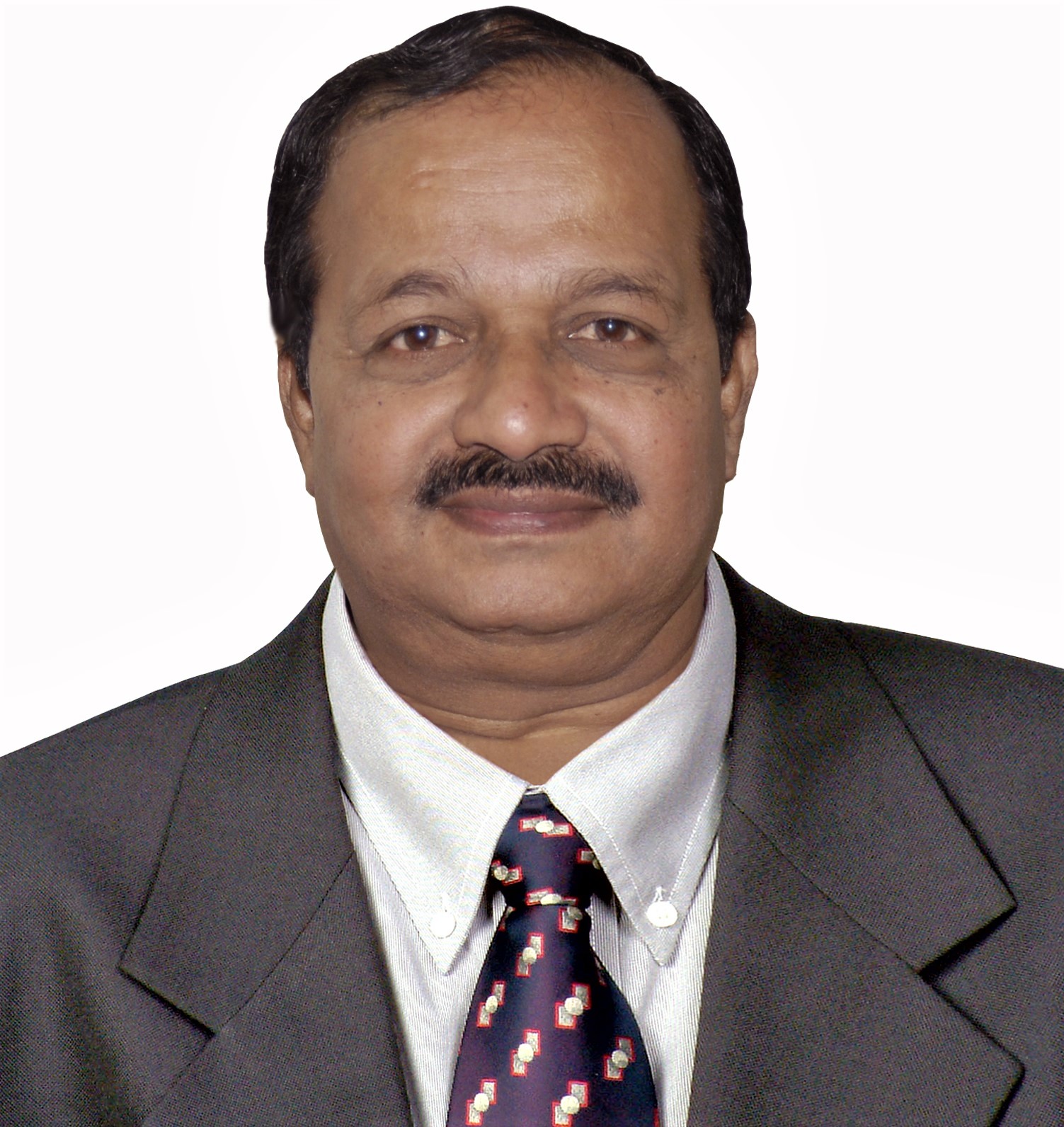
Prof.G.Bhupal Raj
The School of Agriculture of our University is committed for developing the competent and socially responsible agricultural professionals who can address contemporary challenges in agriculture and allied sectors. The School follows the ICAR Model Act in curriculum design, teaching, and evaluation, ensuring academic rigor and outcome-oriented learning. Our academic programmes are structured to integrate climate-smart and sustainable agricultural practices, digital and precision technologies, value-chain and agribusiness development, and entrepreneurial skills, in line with national priorities and global standards. Our well-qualified faculty, with doctoral and postdoctoral experience from reputed institutions, play a pivotal role in mentoring students and fostering a strong academic and research culture..
Experiential and skill-based learning is strengthened through instructional farms, experimental fields, and ELP units that provide hands-on exposure and entrepreneurial training. The School also actively engages in outreach and extension activities through farmer interactions, training programmes, and community engagement, reinforcing the social relevance of agricultural education. A vibrant campus environment, enriched by student clubs, cultural activities, sports, and well-facilitated hostels, supports holistic student development. Through its integrated focus on teaching, research, outreach, and infrastructure, the School of Agriculture continues to nurture skilled graduates committed to the advancement of agriculture and sustainable development.
Classrooms & Laboratories
Well-qualified faculty ensure excellence in teaching and extension through research- driven and experiential learning. Modern classrooms, advanced laboratories, and robust ICT facilities support effective, hands-on, and technology-enabled education. Instructional farms and ELP units provide real-world exposure to crop production, agri- enterprises, and field problem-solving. Industry interaction, field visits, and research projects strengthen practical skills and professional competence. Together, these facilities foster innovation, critical thinking, and readiness to meet contemporary agricultural challenges.







Instructional Farm & ELP Units
The Instructional Farm and Experiential Learning Programme (ELP) units provide hands- on training in crop production, horticulture, livestock, and agri-enterprises. These facilities bridge building the theoretical and practical skills, entrepreneurship, and real- world agricultural competence among B.Sc. Agriculture students. Students gain exposure to modern farming techniques, precision agriculture, and sustainable production systems. Field-based learning enhances decision-making, problem-solving, and farm management capabilities. The programme prepares graduates for careers in agriculture, agribusiness, research, and extension services.






Glimpses of Experiential Learning Programme

Glimpses of Experiential Learning Programme

instructional farm
Exposure visits

NBPGR, Hyderabad

Forest college, Mulugu

Visit to Mulkanoor Society

Rajendranagar, Hyderabad

Enumamula, Warangal

KVK, Jammikunta

KVK, Jammikunta

ICRISAT, Hyderabad

AIA training

Visit to CRIDA, Hyderabad

Visit to IIRR, Hyderabad

Visit to KVK, Jammikunta

Visit to KVK, Jammikunta

Visit to RARS, Warangal, PJTSAU

Visit to ARI, Rajendranagar, PJTSA

Visit to CRIDA

Visit to CRIDA

Visit to KVK, Mamnoor

Visit to Adrish, Zero Waste Organic Store

Biocontrol Laboratory in Warangal

Green house unit,Medipally Village

Seed processing unit- Mangala Seeds, Madikonda

Soil Health Management, PJTSAU,Hyderabad

Visit to Cultivation of Vegetable Crops under Glass House

visit to Farm Implements Machinery,PJTSAU

visit to IFS Unit ,PJTS, Hyderabad.

Visit to NIPHM, Hyderabad

visit to Sericulture Unit, Thummanapally

Visit to warangal fort- identification of types of Rocks
Cultural activities

Sparkrill

Sparkrill

Traditional Day

Traditional Day

Batukamma Celebrations

Batukamma Celebrations

Rangoli Competition

Rangoli Competition

Swagatham

Swagatham

Hostel Hawa for Girls

Hostel Hawa for Girls

Hostel Hawa for Boys

Hostel Hawa for Boys

Hostel Hawa for Boys

Team Natya Shakti Club

Drama & Theatre Club

Music Club

Painting & Sketching Club

Photography & Movie Making Club

Fashionista Club

Artistic Club

Artistic Club

Batukamma event

Pro-night

Farewell Party

Navadhara
Professional Activities @SoA

Farm Land

Hydroponics & Polyhouse

Students working with industry

Hydroponics

Hydroponics

Polyhouse

Commercial Horticulture Unit

Protected Cultivation Unit

Groundnut Production Unit

Demonstration on seed treatment

Demonstration on modified DAPOG rice nursery

Demonstration on value-added products

Demonstration on soil sample collection

Demonstration of digital Agri-apps to farmers

Exhibitions

Exhibitions

Participatory Rural Appraisal Programme

Participatory Rural Appraisal Programme

Organic Paddy Production

Sweet Corn Production

Groundnut Production

Azolla farming unit

Commercial Horticulture

Vermicomposting Unit

Mushroom Unit

Protected Cultivation Unit

Workshop on No-Code AI for Agriculture Professionals and Students

Workshop on No-Code AI for Agriculture Professionals and Students

Workshop on No-Code AI for Agriculture Professionals and Students

Fertilizer orientation programme

Fertilizer orientation programme

Apiculture hands-on training

Glimpses of Farmers’ Mela & distribution of soil health cards

Glimpses of Farmers’ Mela & distribution of soil health cards

Glimpses of Farmers’ Mela & distribution of soil health cards

Glimpses of Farmers’ Mela & distribution of soil health cards

World Soil Day

World Soil Day

World Food Day

World Food Day

National Farmers Day

Training conducted to female students by Godrej Agrovet (IKKA Foundation)

Training conducted to female students by Godrej Agrovet (IKKA Foundation)

Interactive sessions conducted at SoA on Aptitude and Reasoning

Interactive sessions conducted at SoA on Aptitude and Reasoning

NSS activities conducted by SoA

Student Club Activities at SR University

Bio-gas Plant at School of Agriculture

Bio-gas Plant at School of Agriculture

Waste water treatment using Reedbed system

Waste water treatment using Reedbed system

Akashavani, Warangal

Deeksha aramb

Meteorological Observatory Opening

Farmer's Day,2025

Forming Drainage Channel in Crop Cafeteria

Induction Training Programme

Kisan ghosti

NCC

NCC

Orientation Programme,2024

Orientation programme

Rhytu vedika

Shade Net

Soil Day, 2025
MoUs / Collaborations




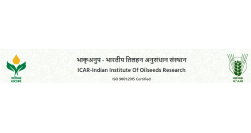
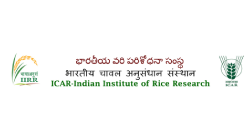
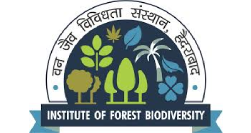
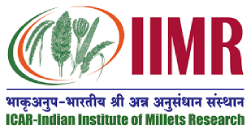
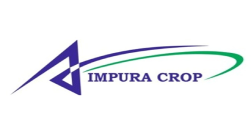

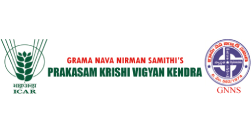

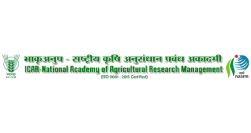

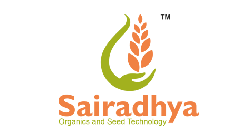

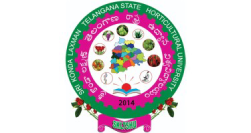
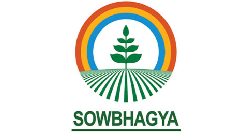
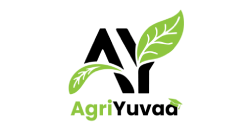
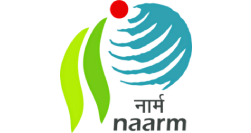
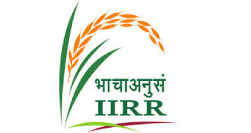
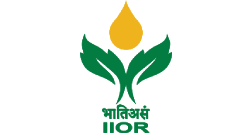
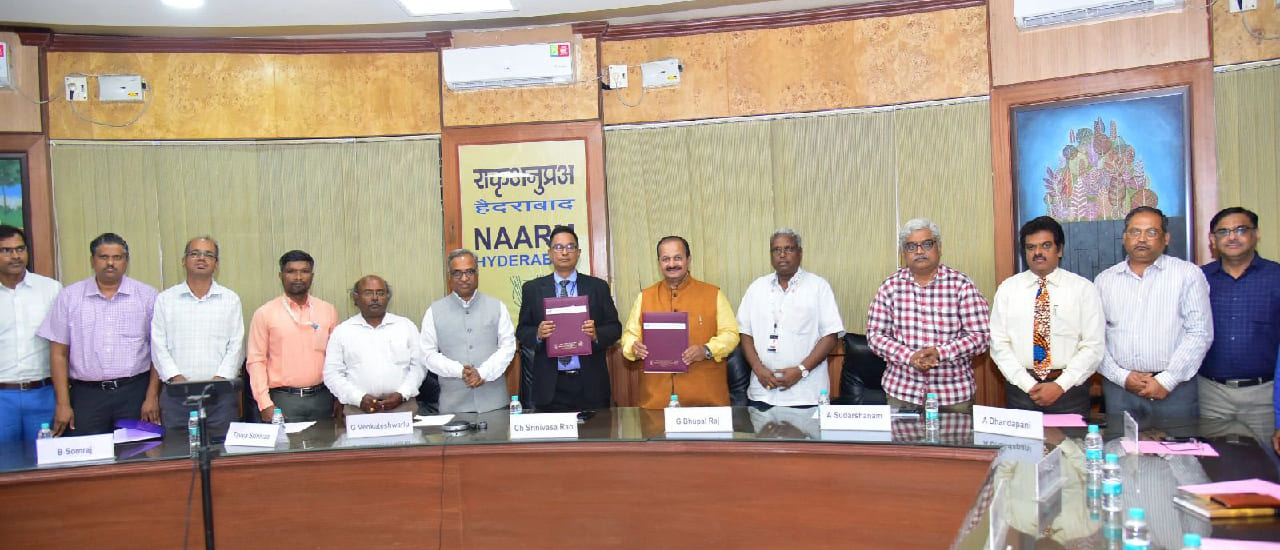
ICAR- NAARM, Hyderabad

ICAR - IIRR,Hyderabad

ICAR-IIMR, Hyderabad

ICAR-IIOR, Hyderabad

Forest Biodiversity (ICFRE-IFB),Hyderabad

SKLTSHU) Mulugu,Siddipet

SRI ANNAPOORNESHWARI NATURALS

Sowbhagya Biotech (P) Ltd,Hyderabad

Ancient Foods India, Hyderabad

ICAR -Prakasham Krishi Vignan Kendra

Impura Crop Science Pvt Ltd ,Patna,Bihar

Sairadhya Organics and Seed Technology Pvt.Ltd Hyderabad

AgrowingZ ( UK BASED)-RAWE Skill Fellowship 2025
Student Achievements
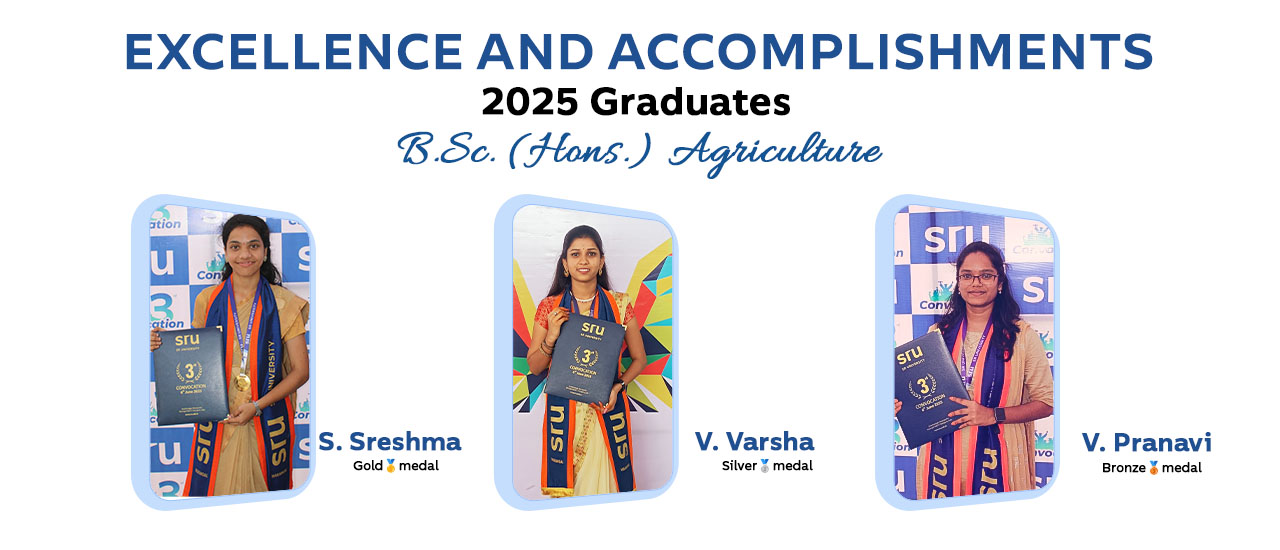
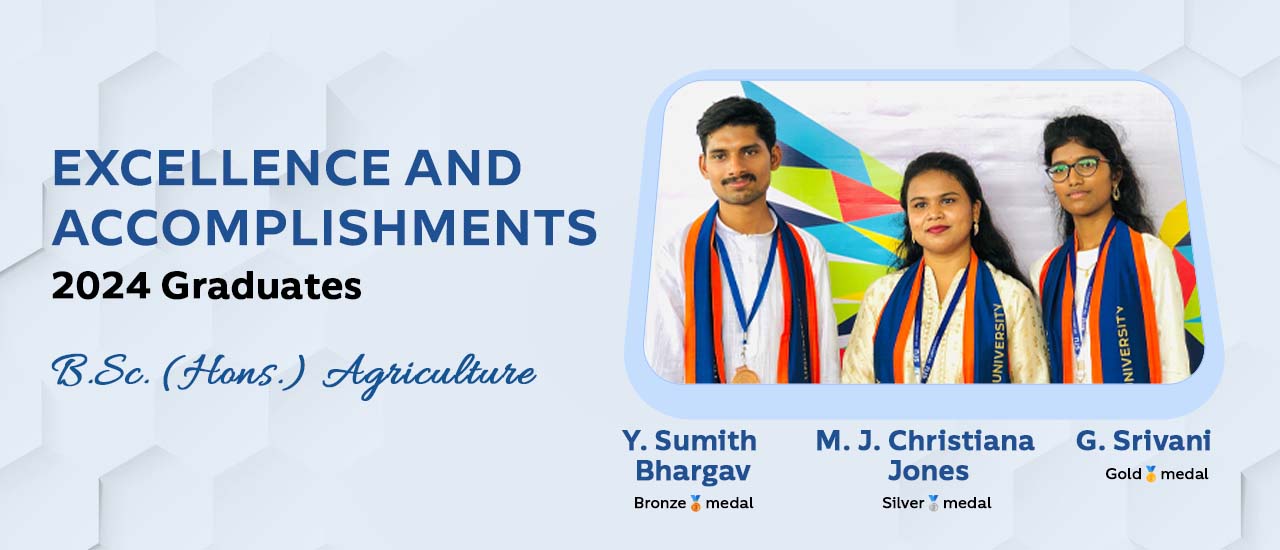
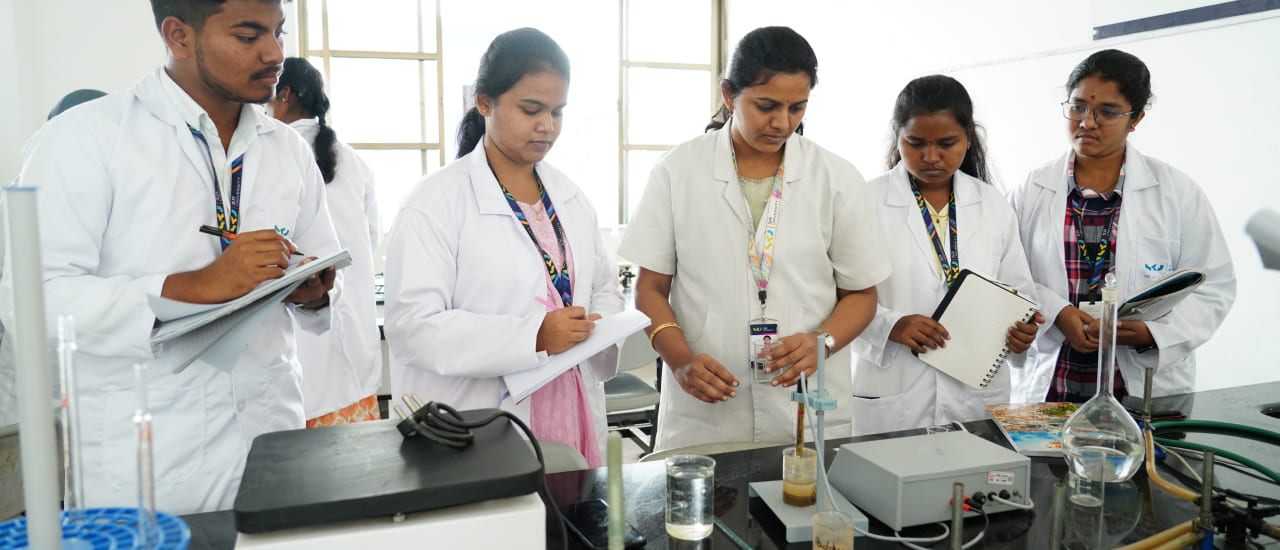
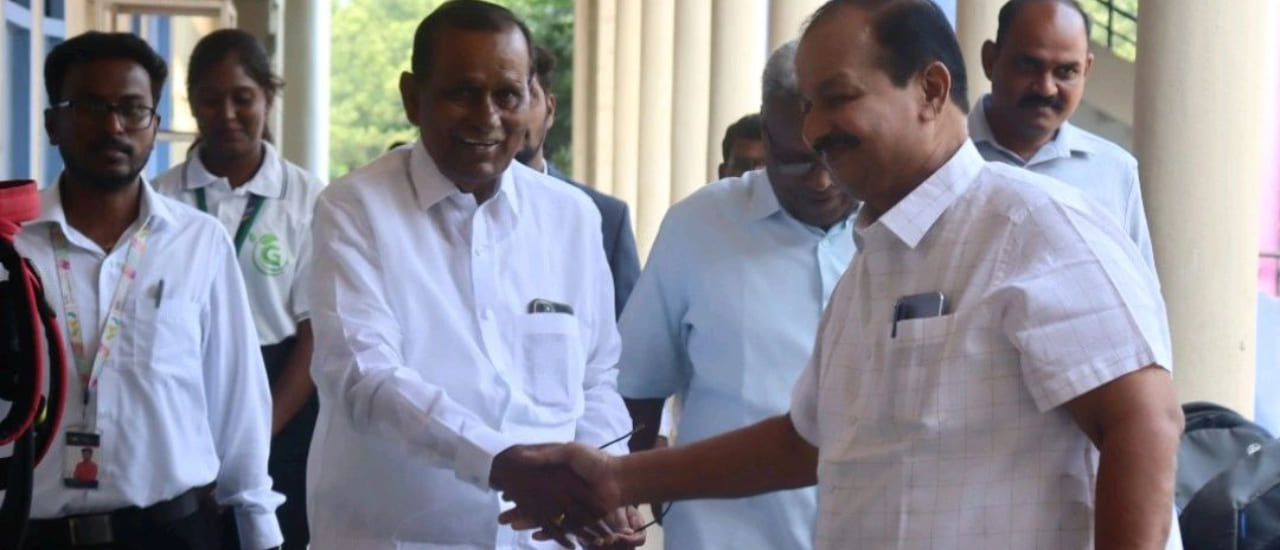
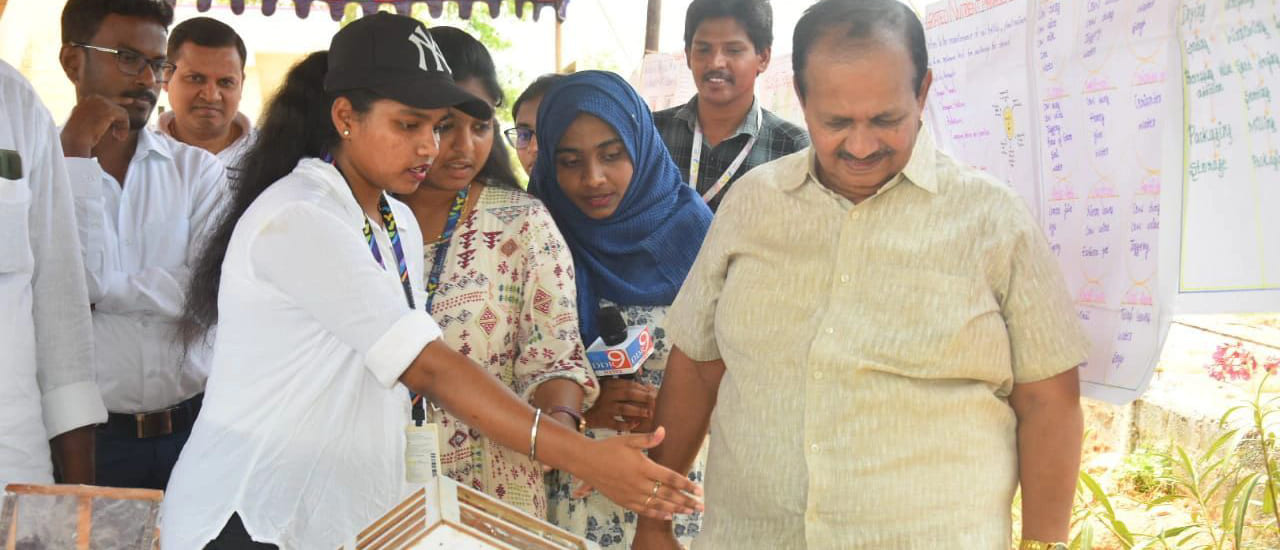
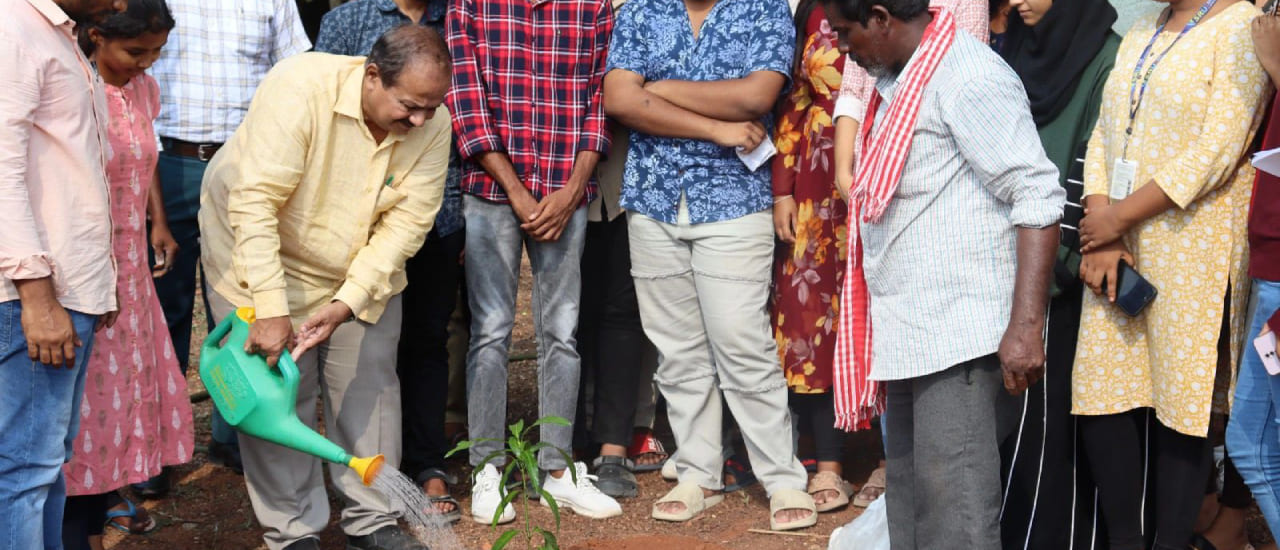
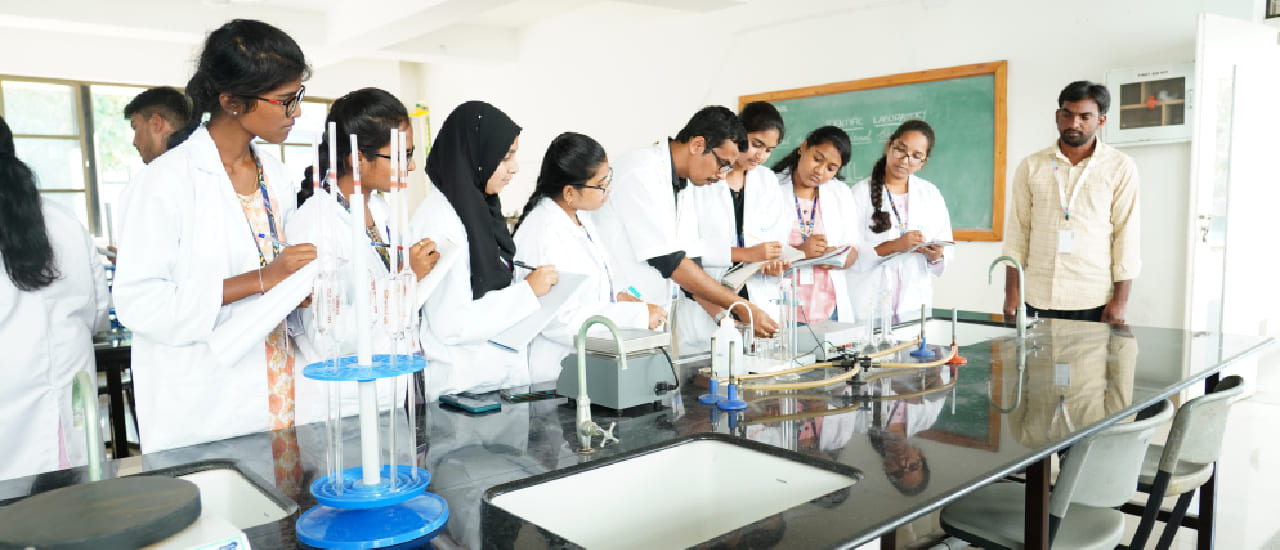
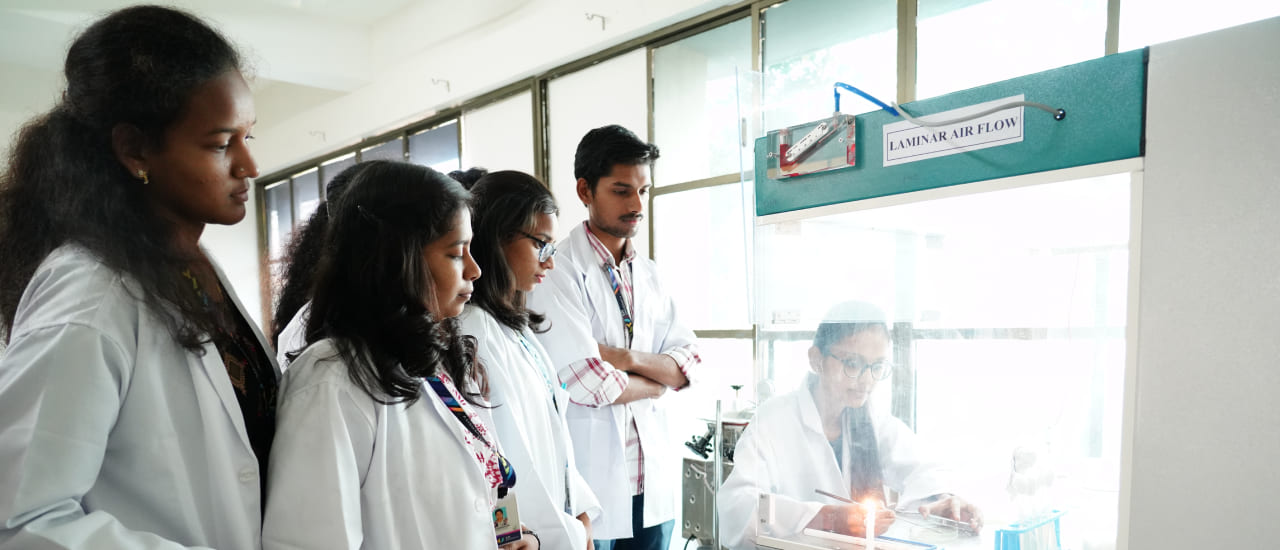
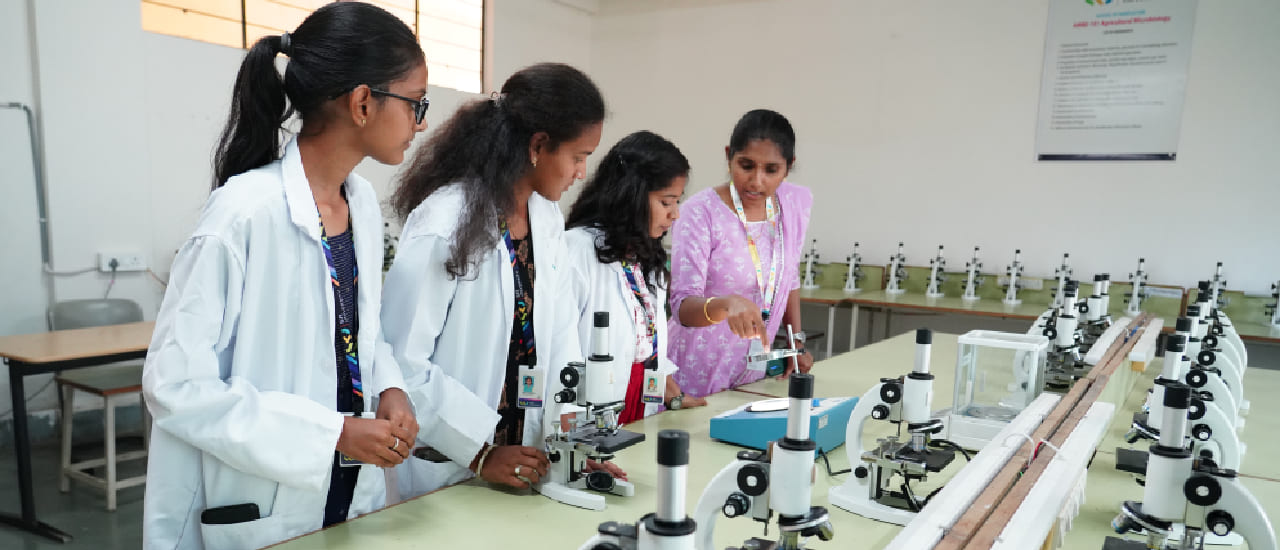

Project Expo – 2025 (23-04-2025)

Project Expo – 2024 (21-11-2024)

Project-Expo Winners

Project-Expo Winners

Project-Expo Winners


















































Our Top Recruiters









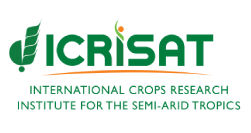

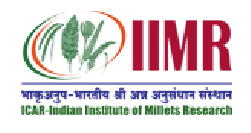



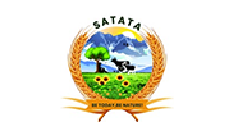


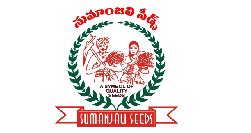


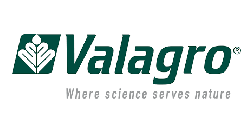


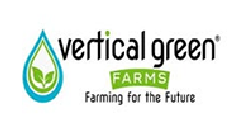


Placements Highlights
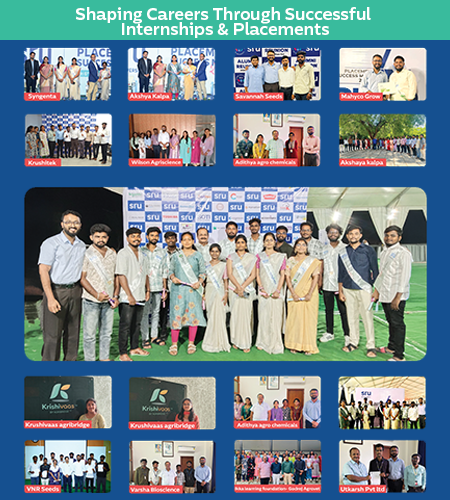
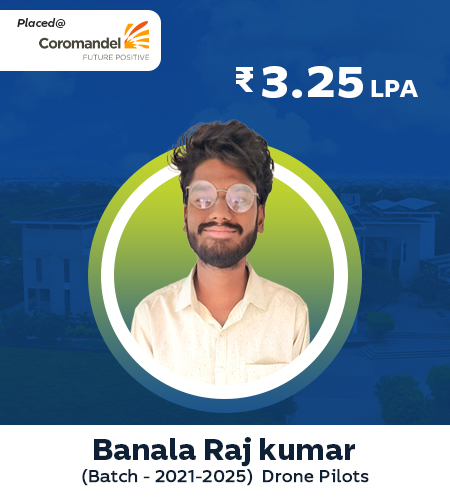
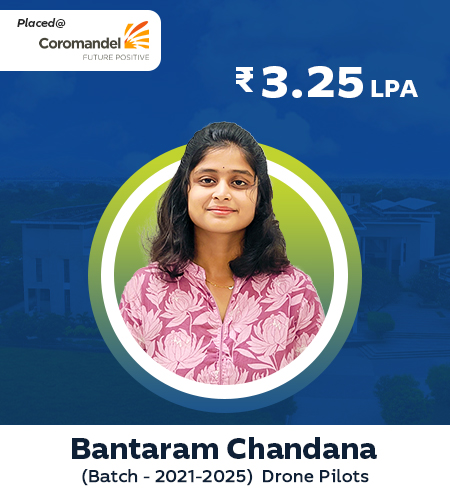
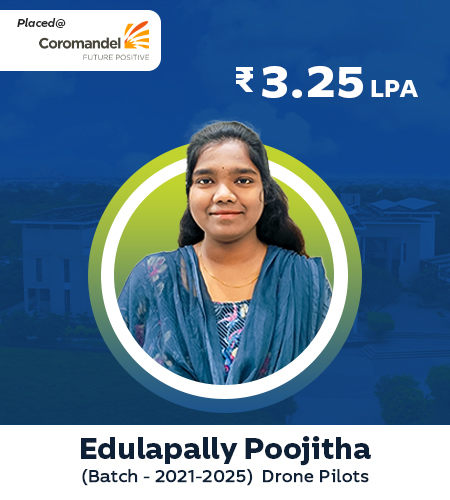
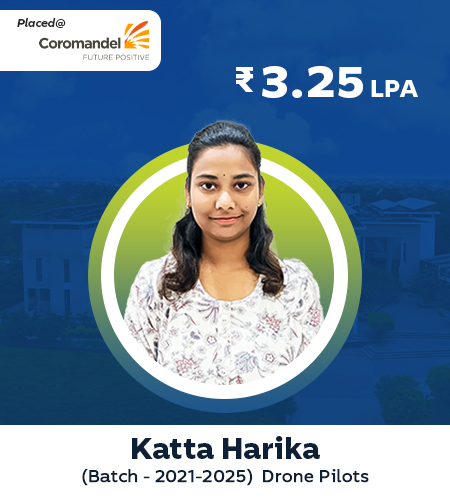
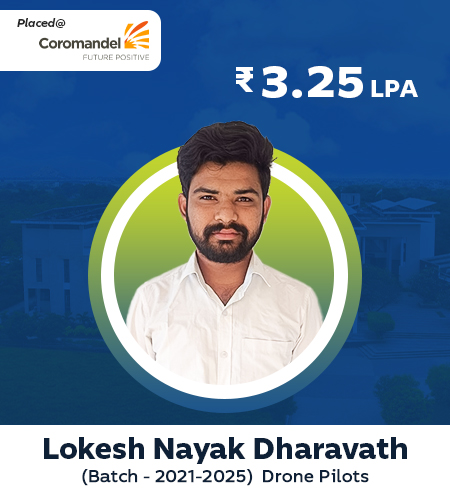
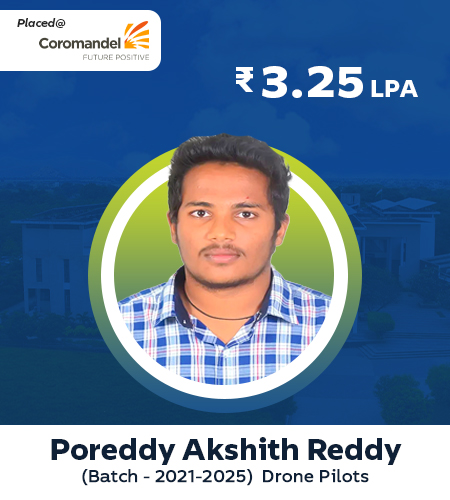

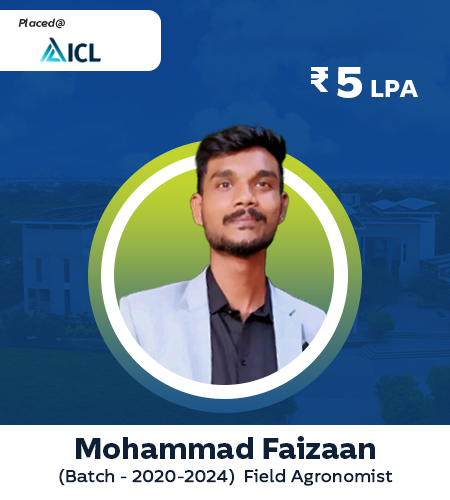
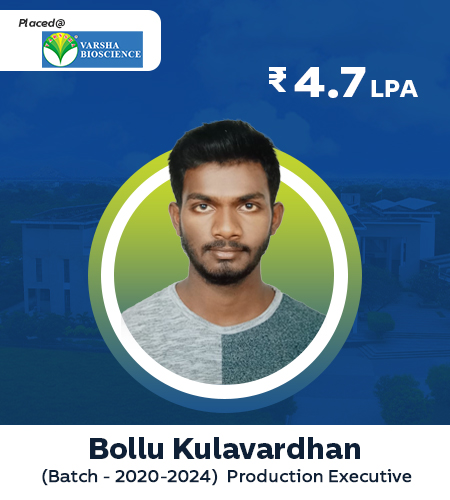
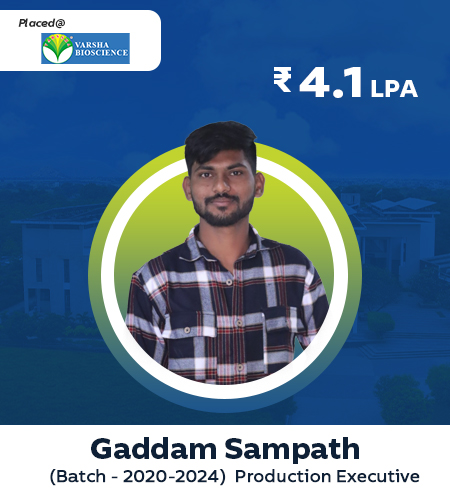
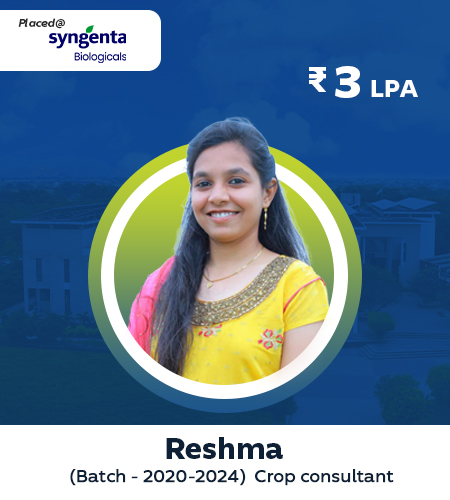
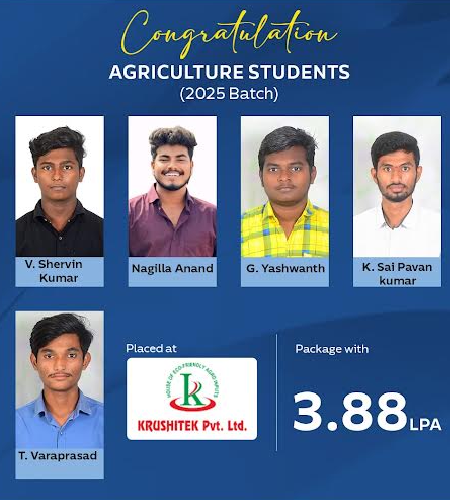
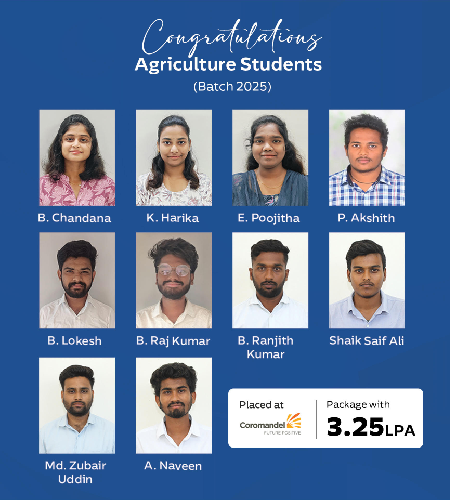
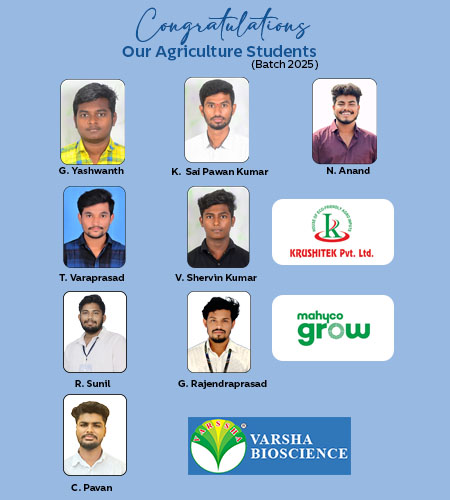
Internship Highlights
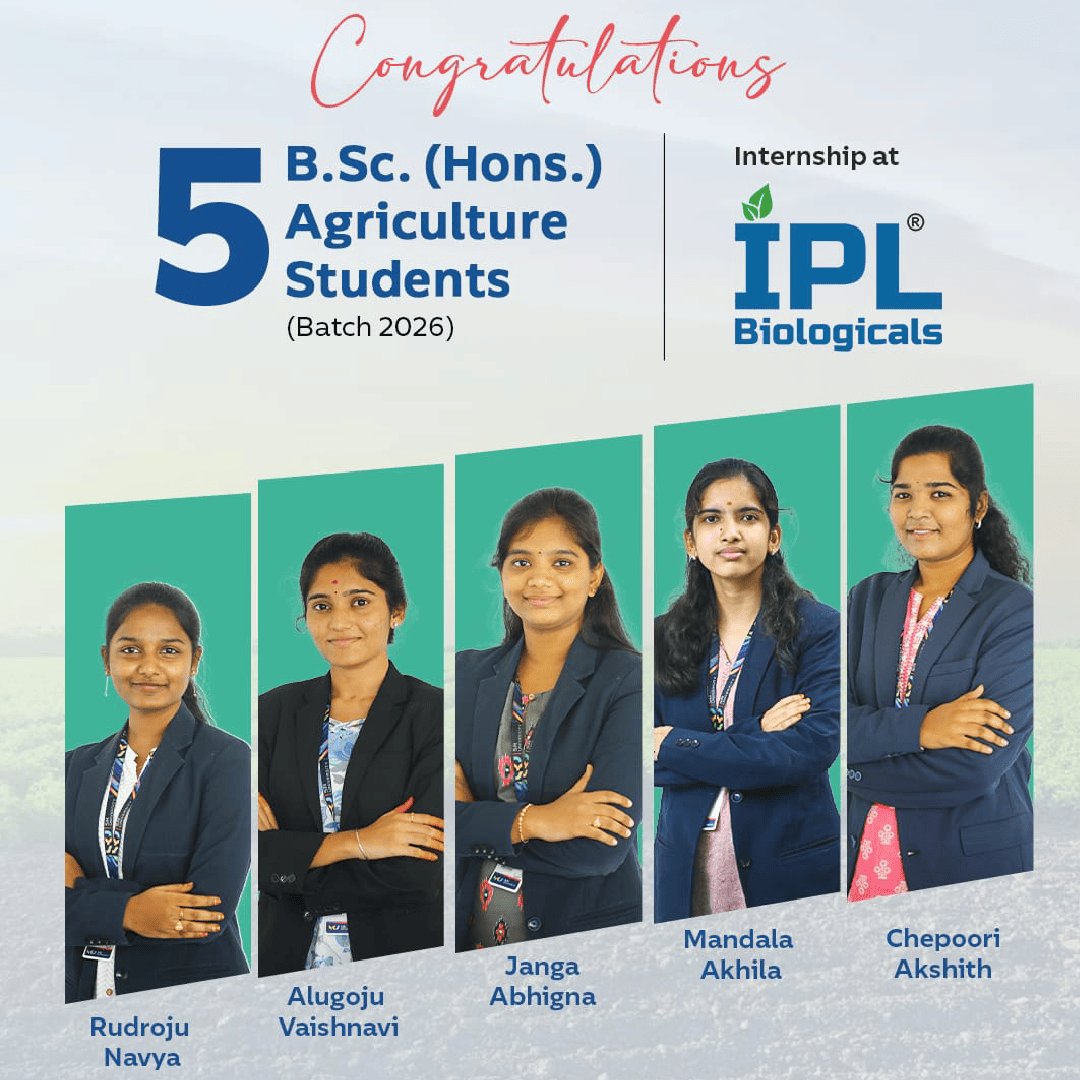
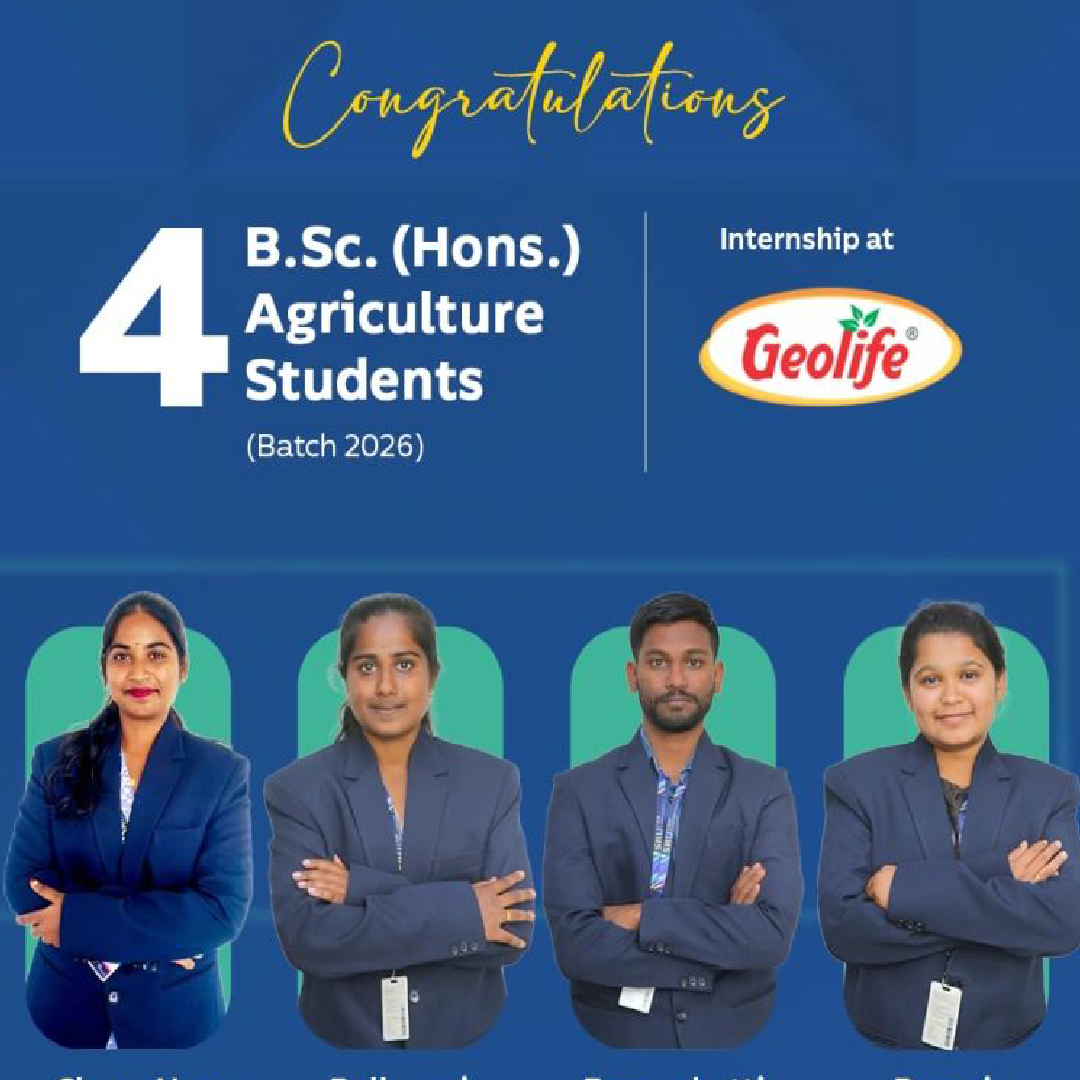
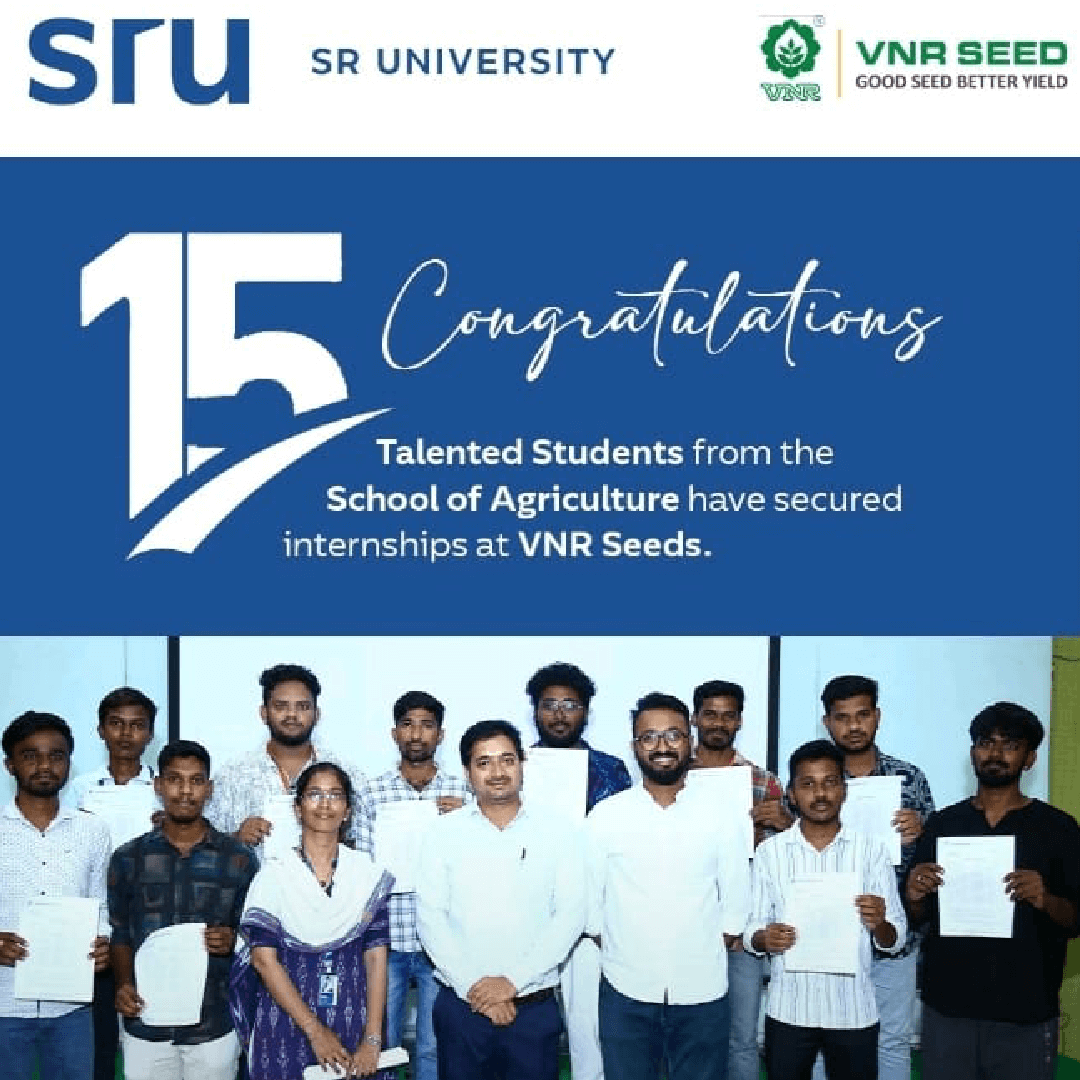

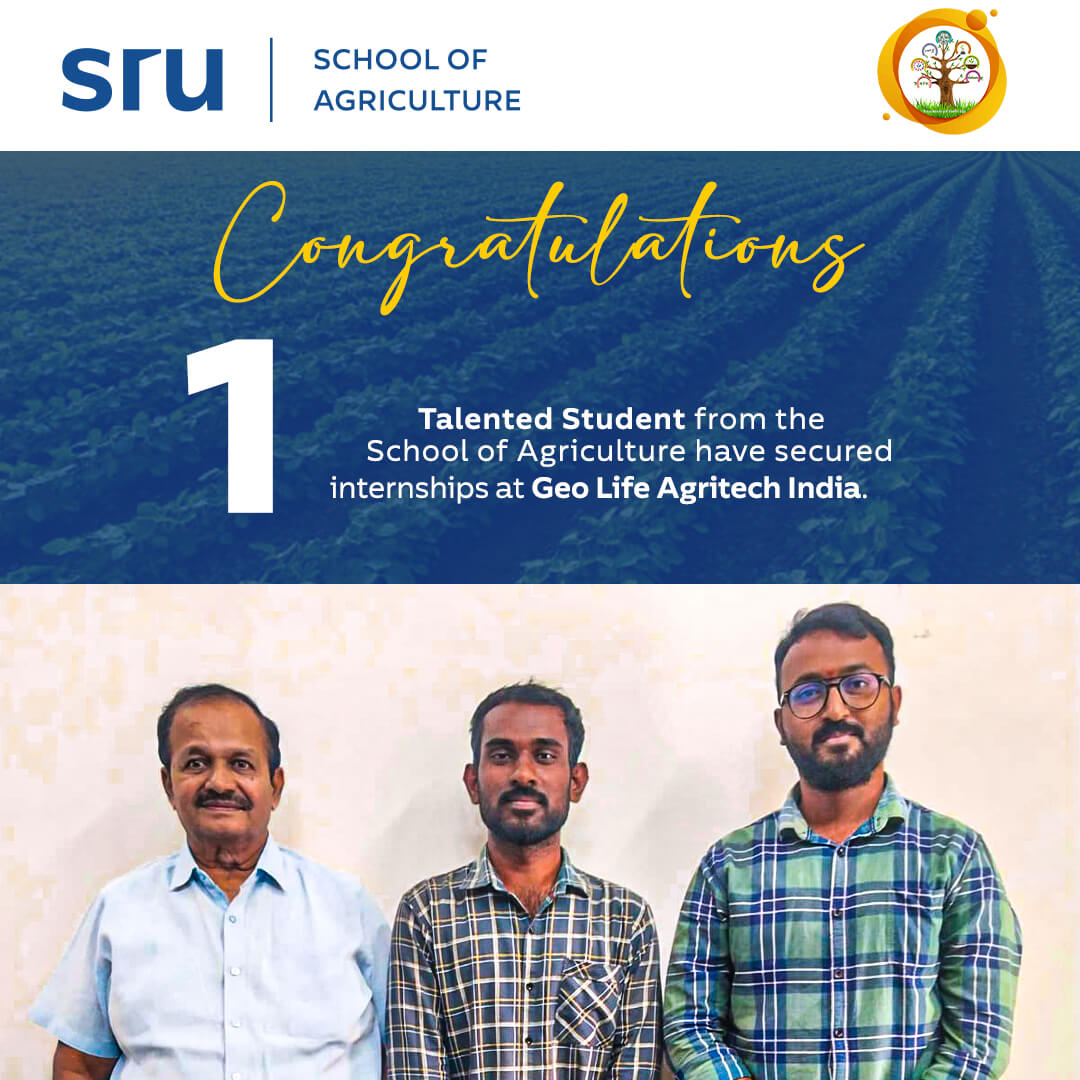
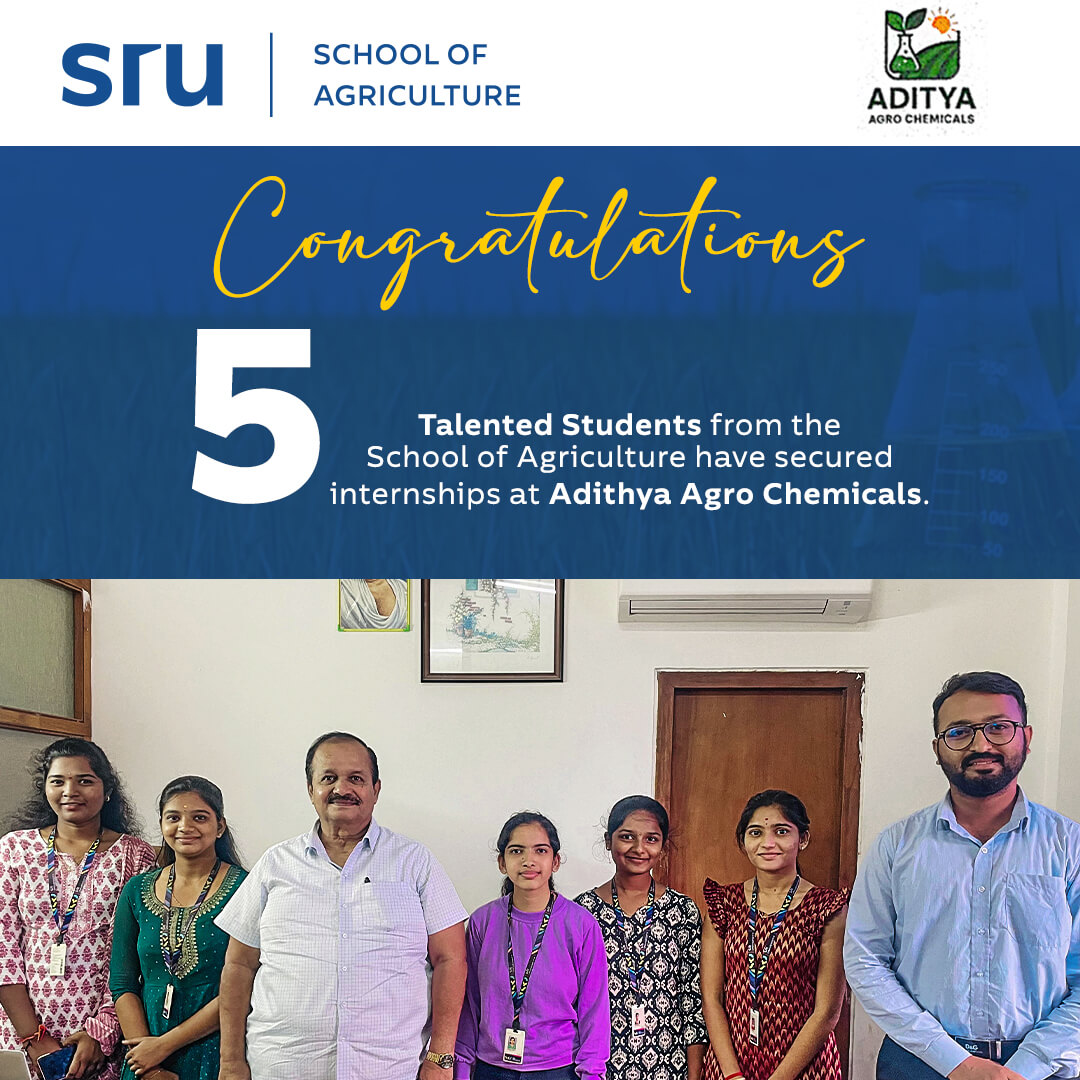
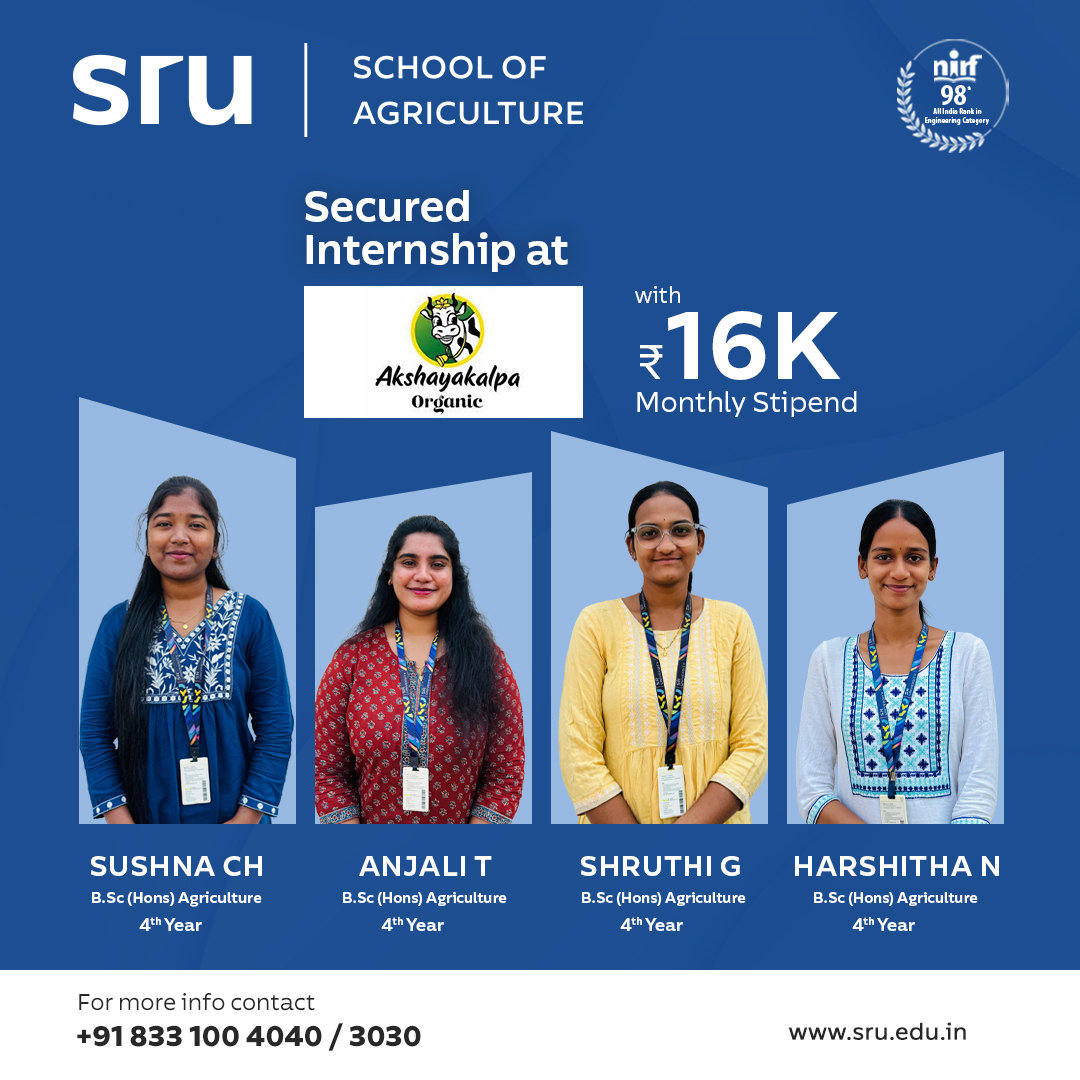
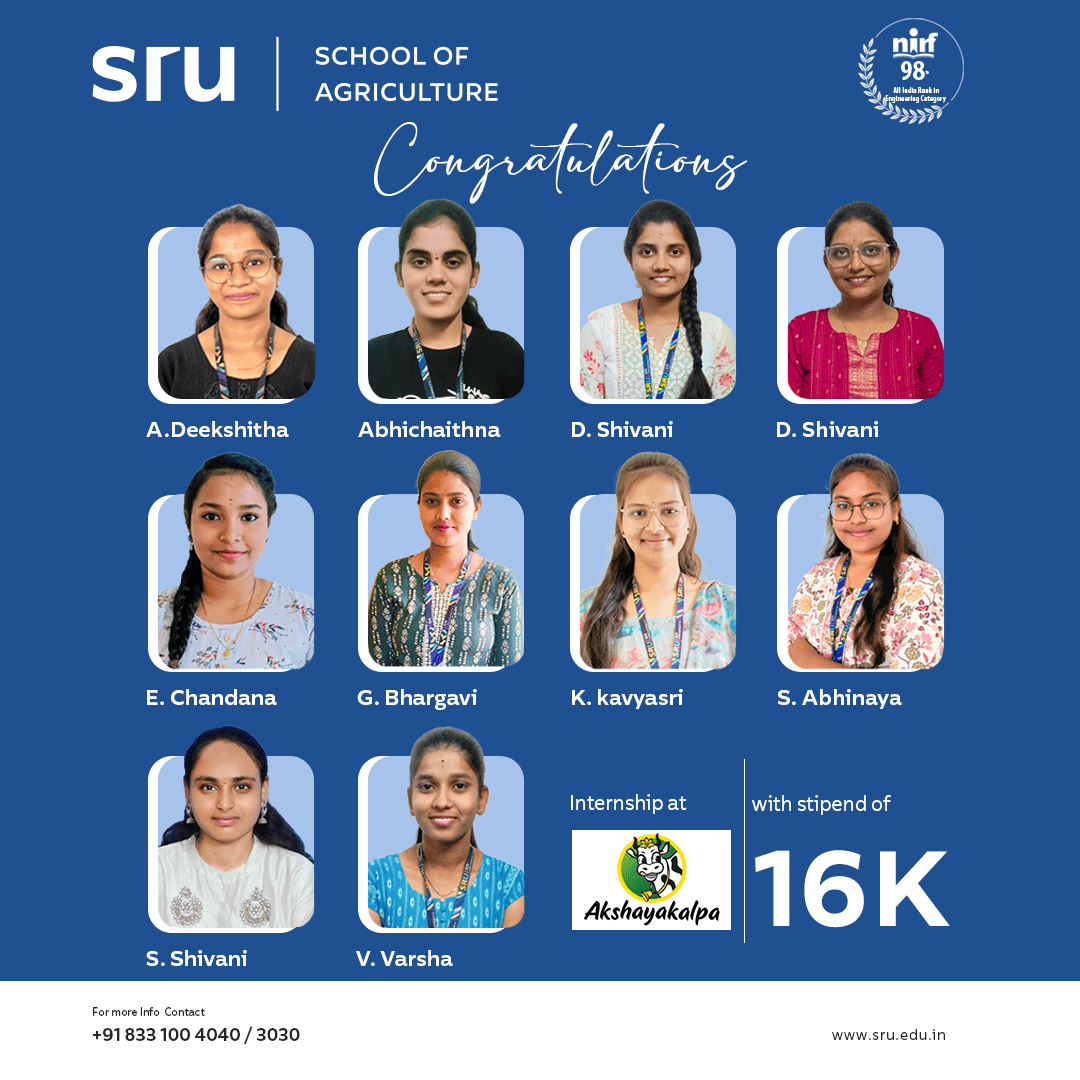

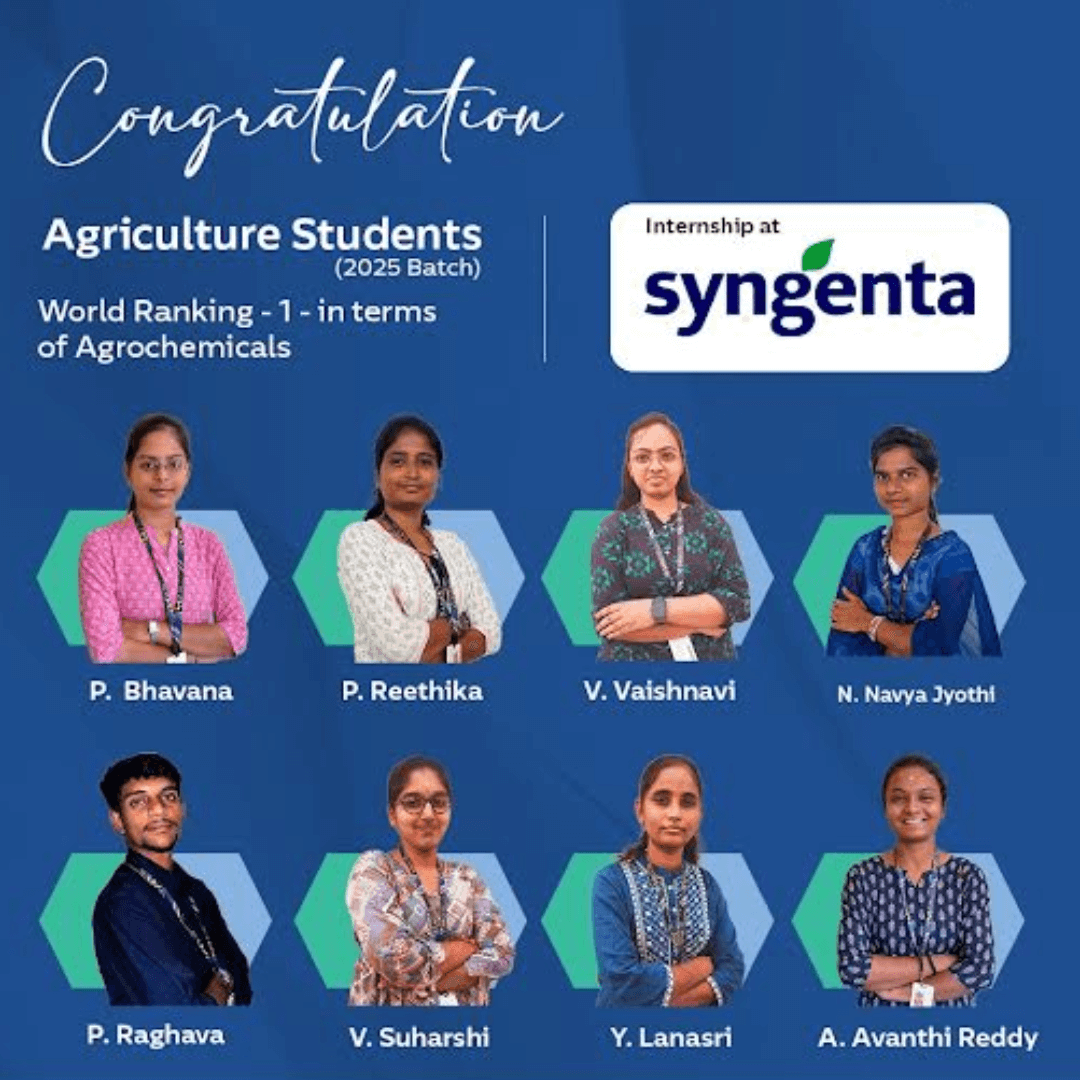
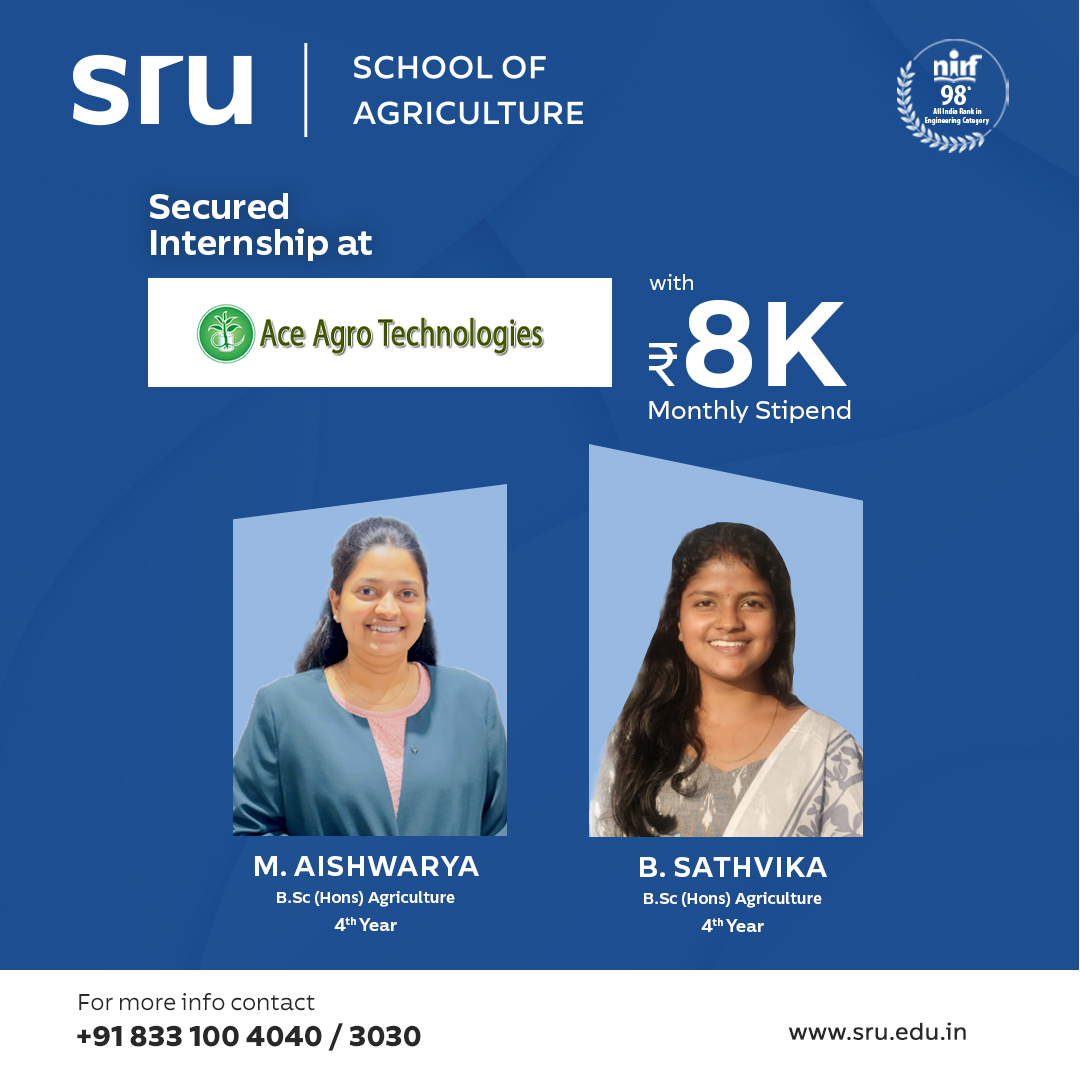
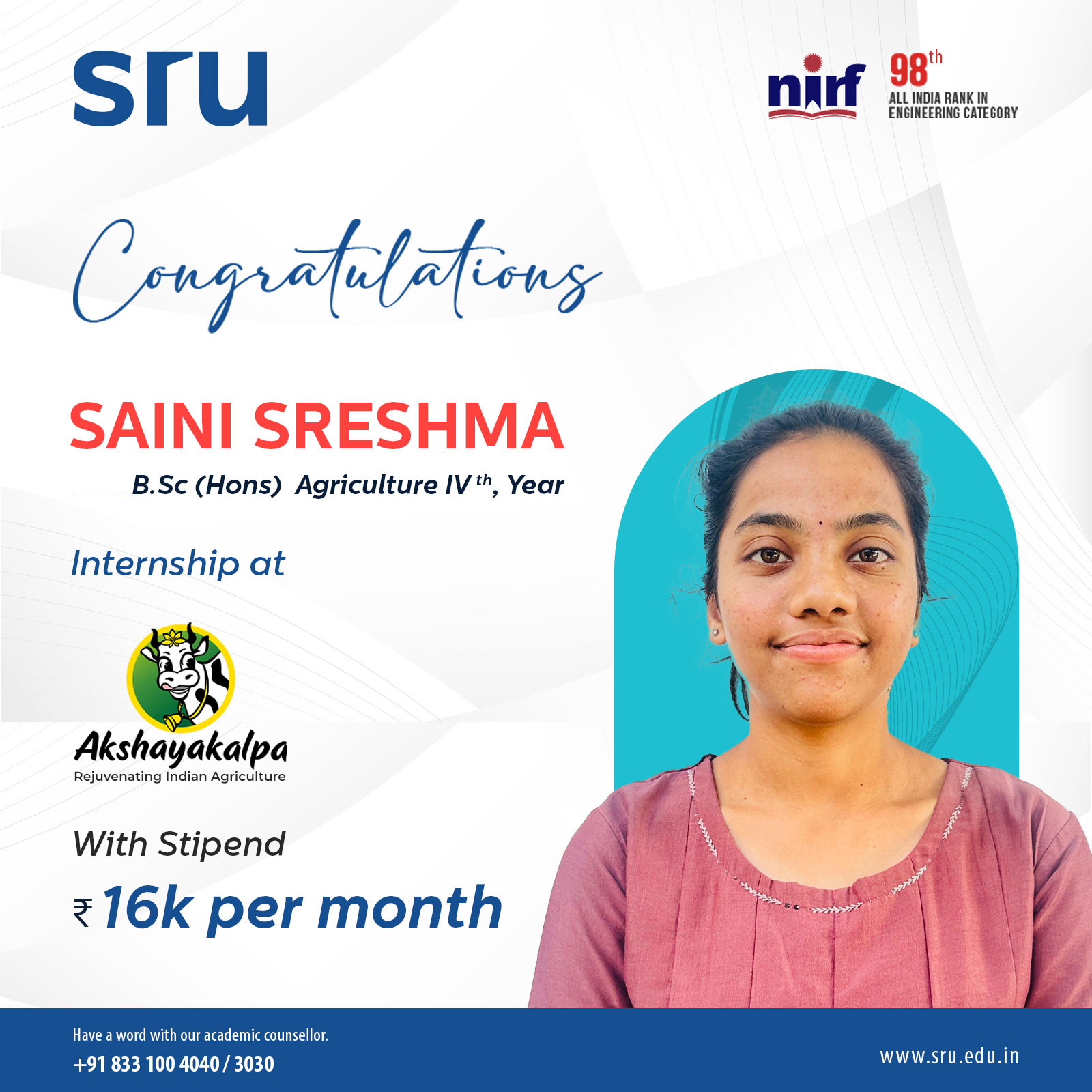
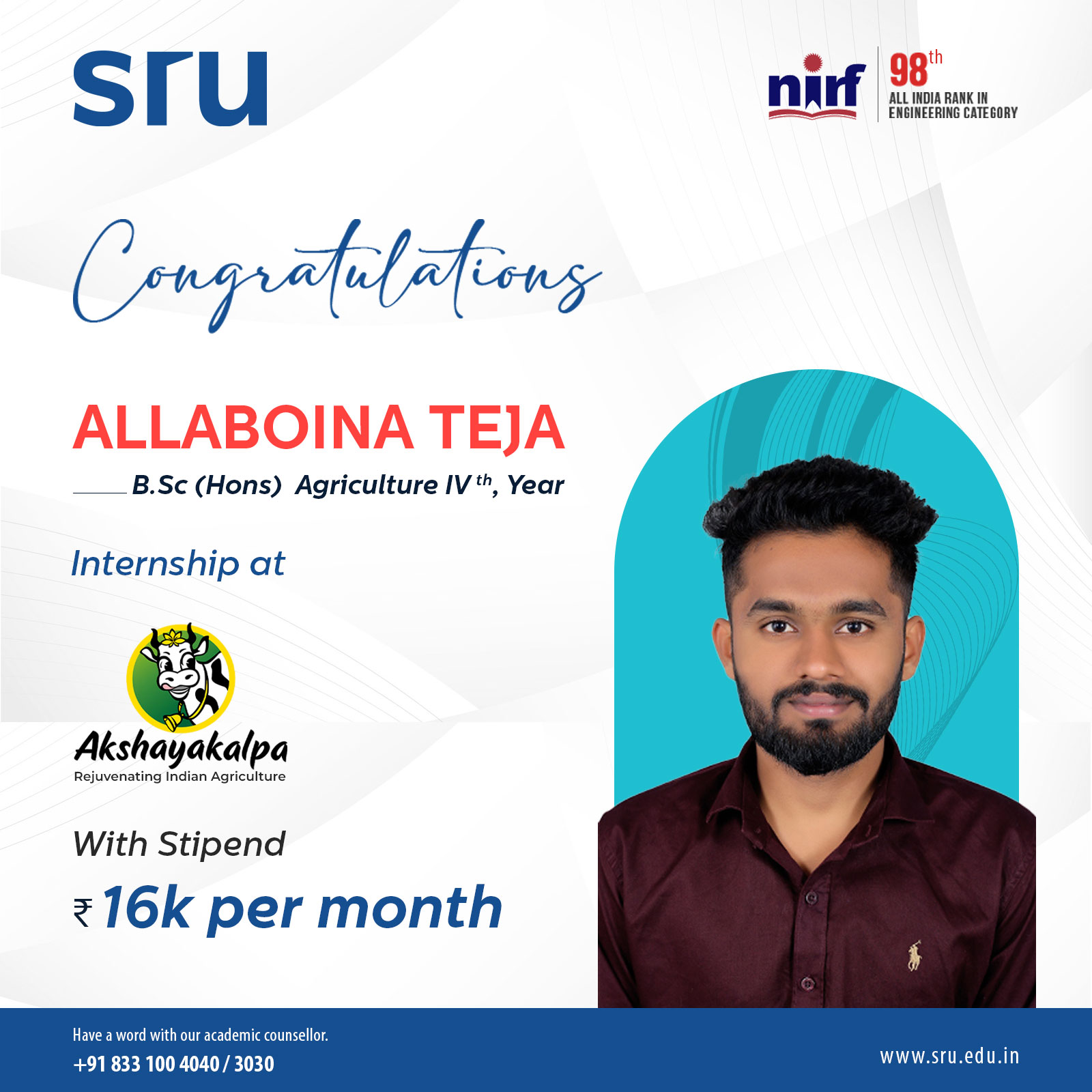
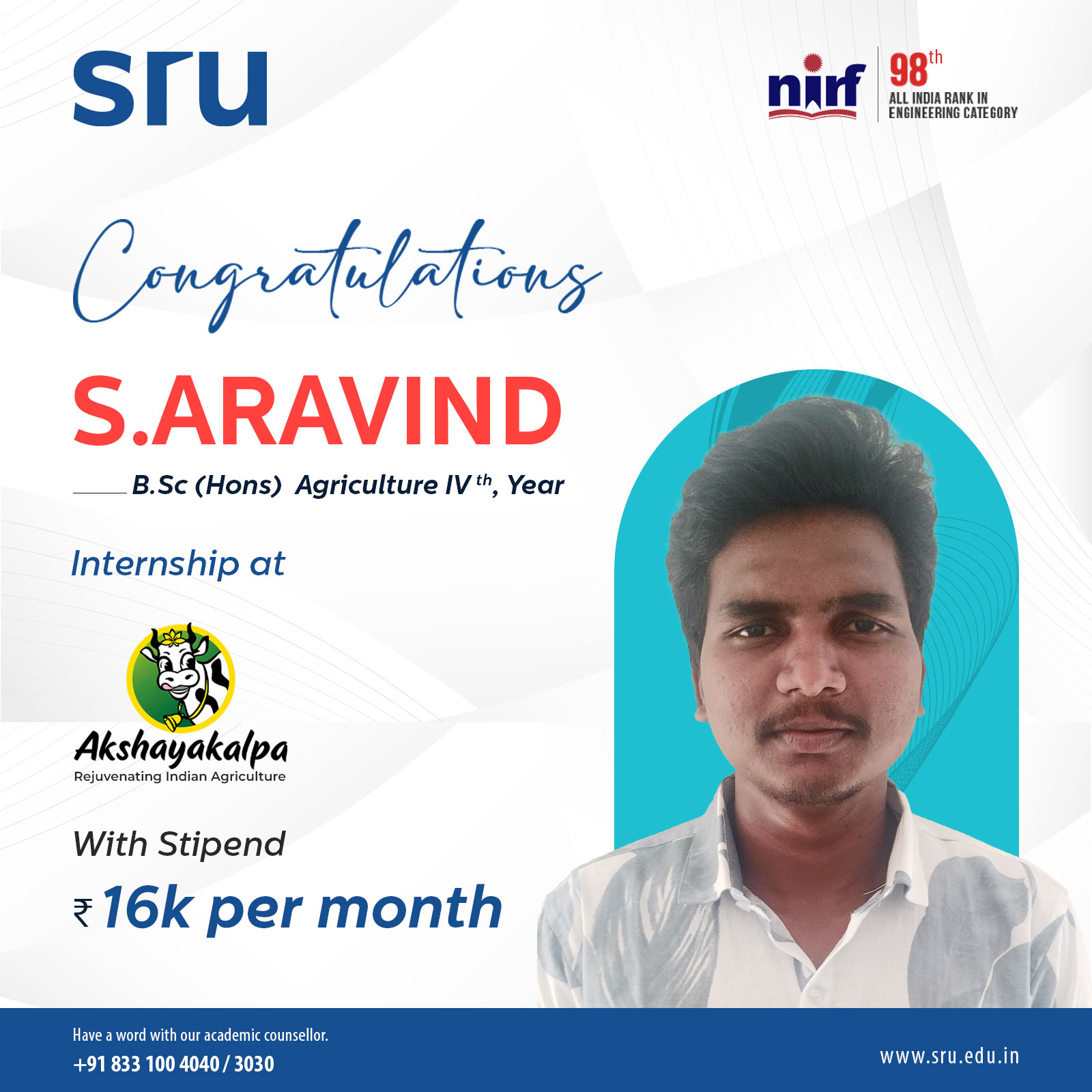
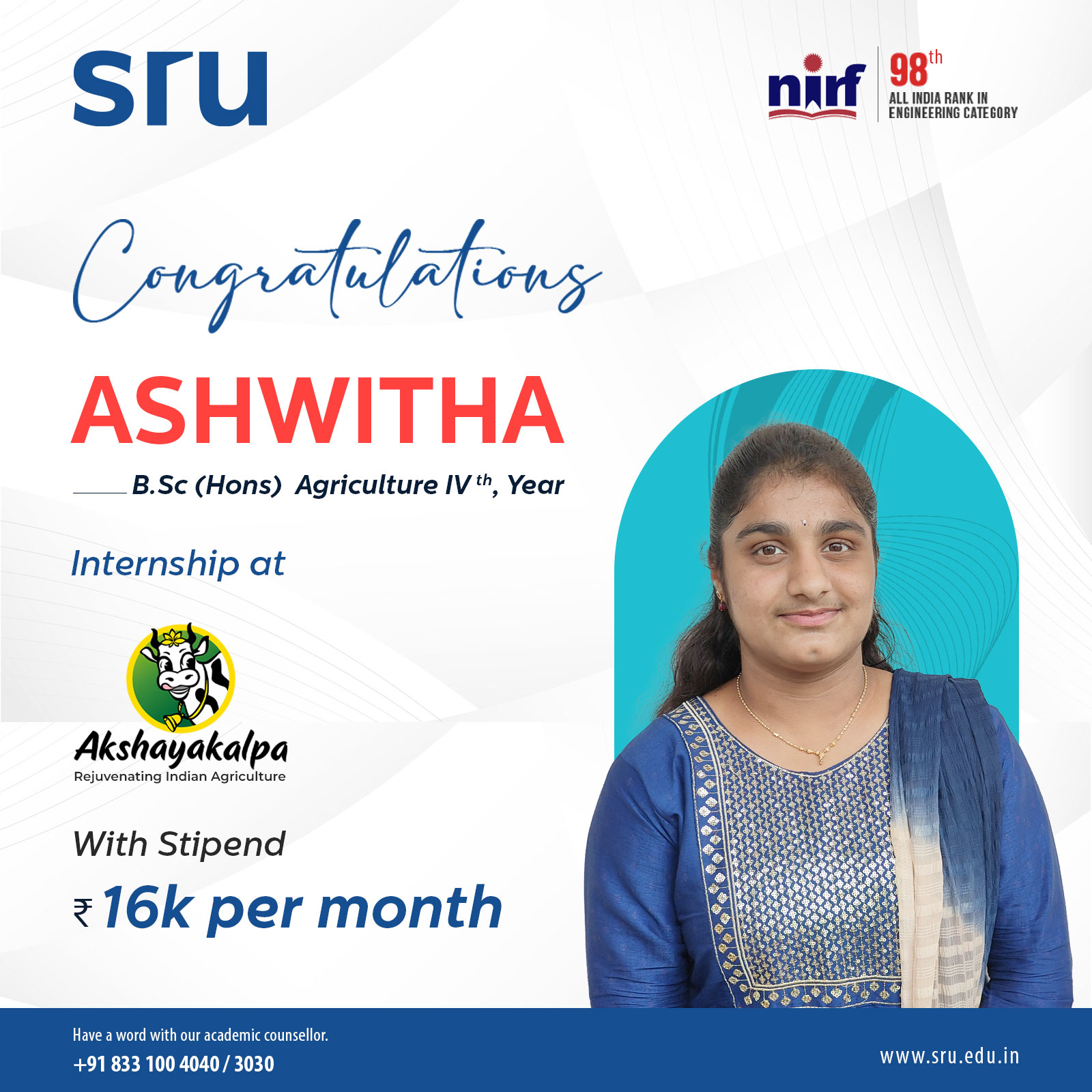
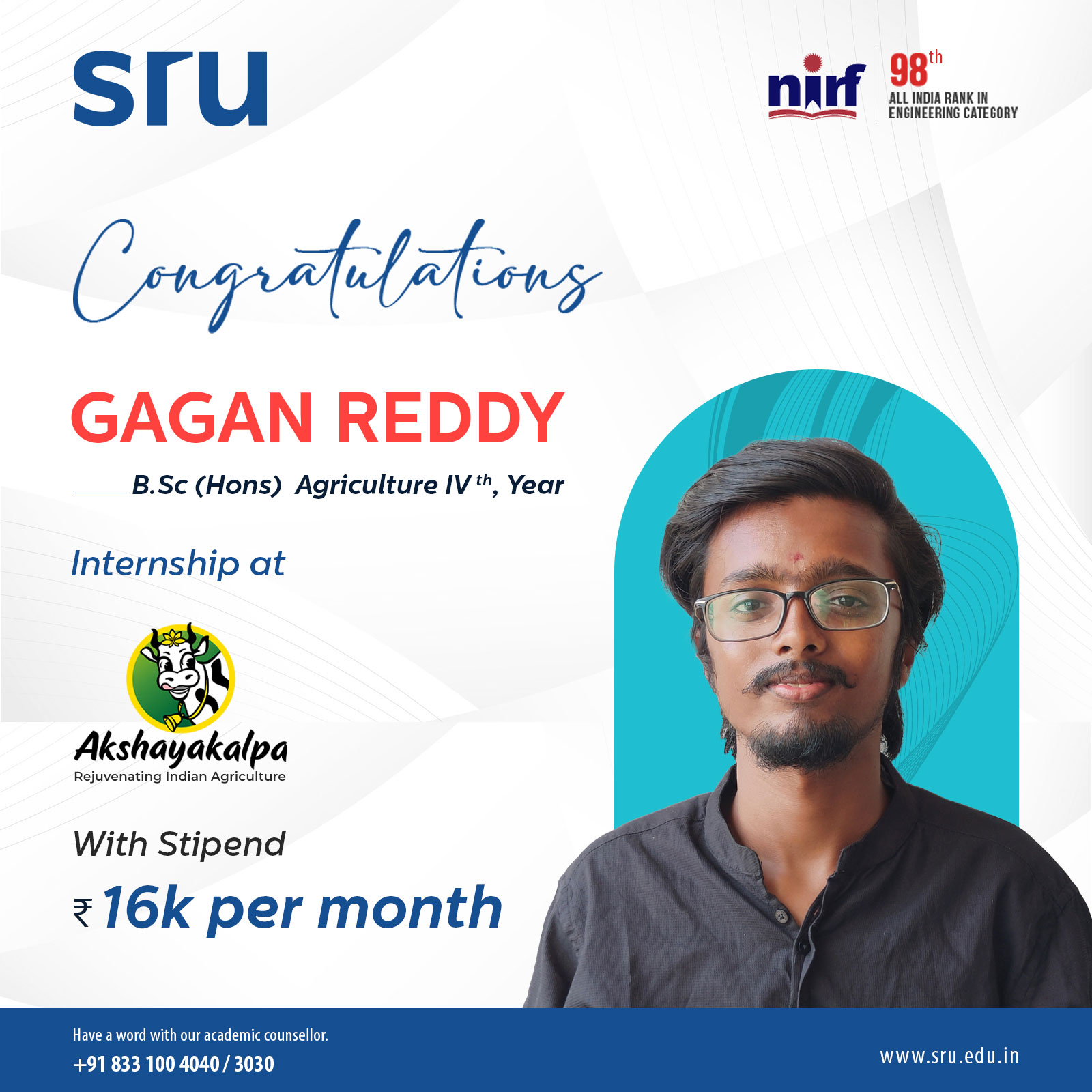
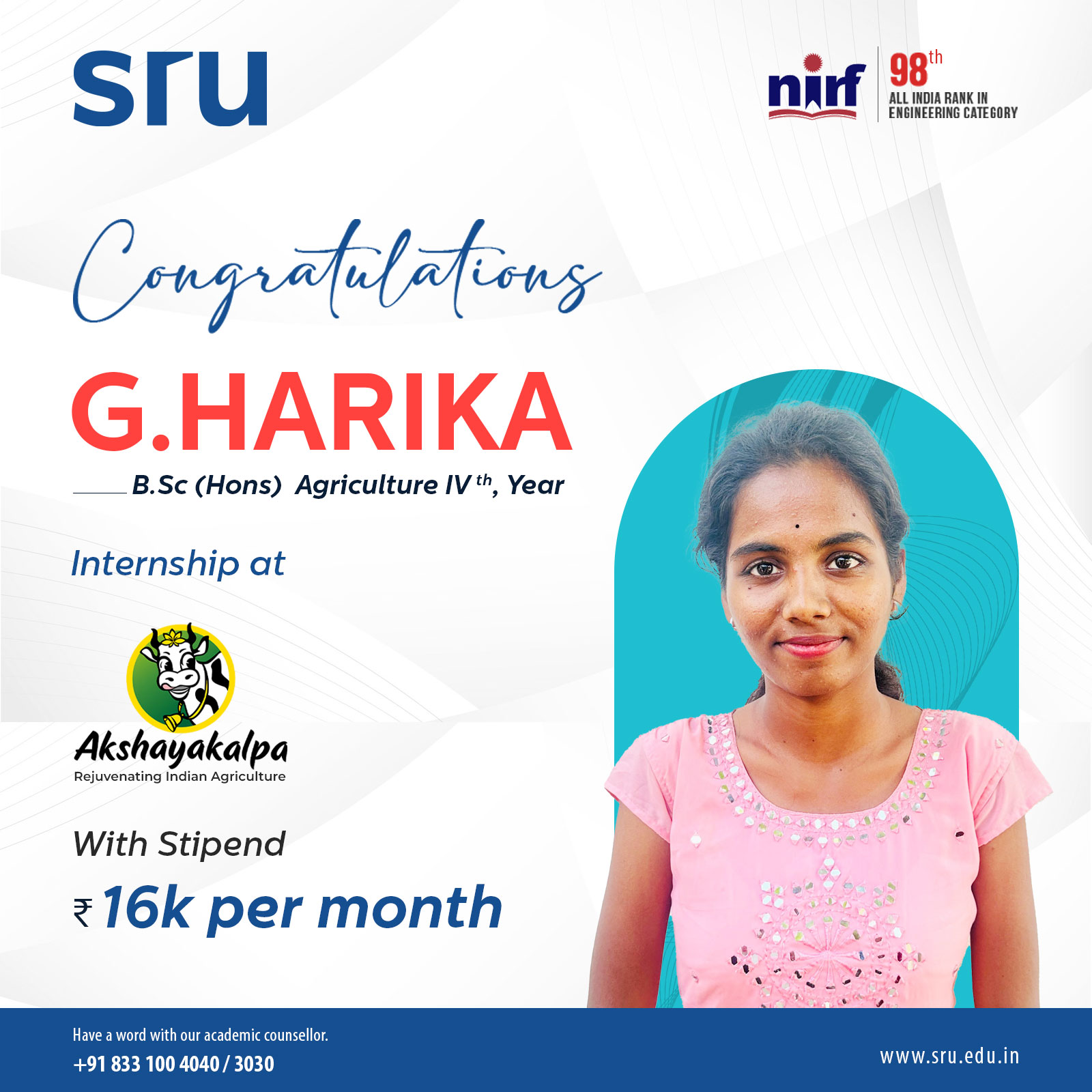
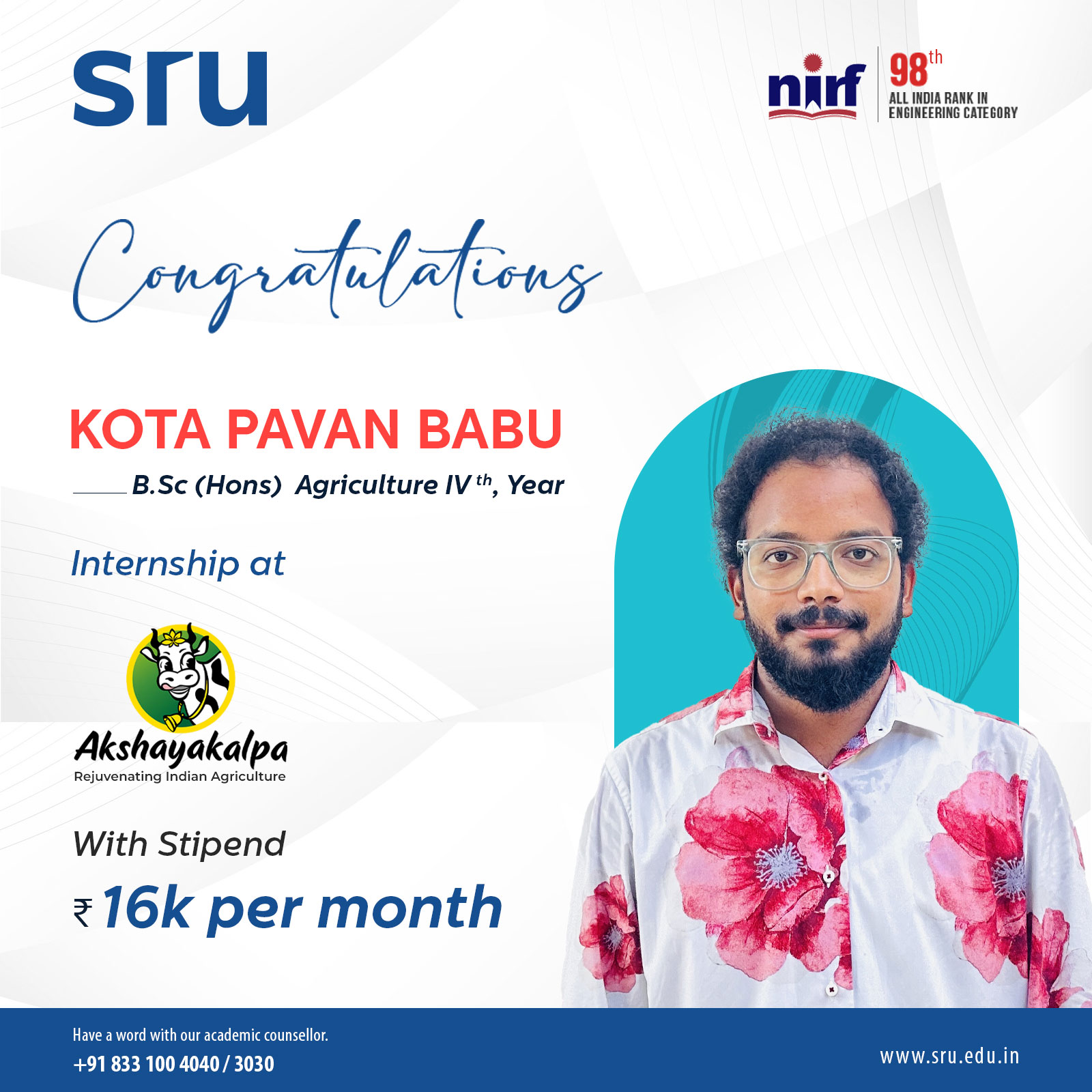
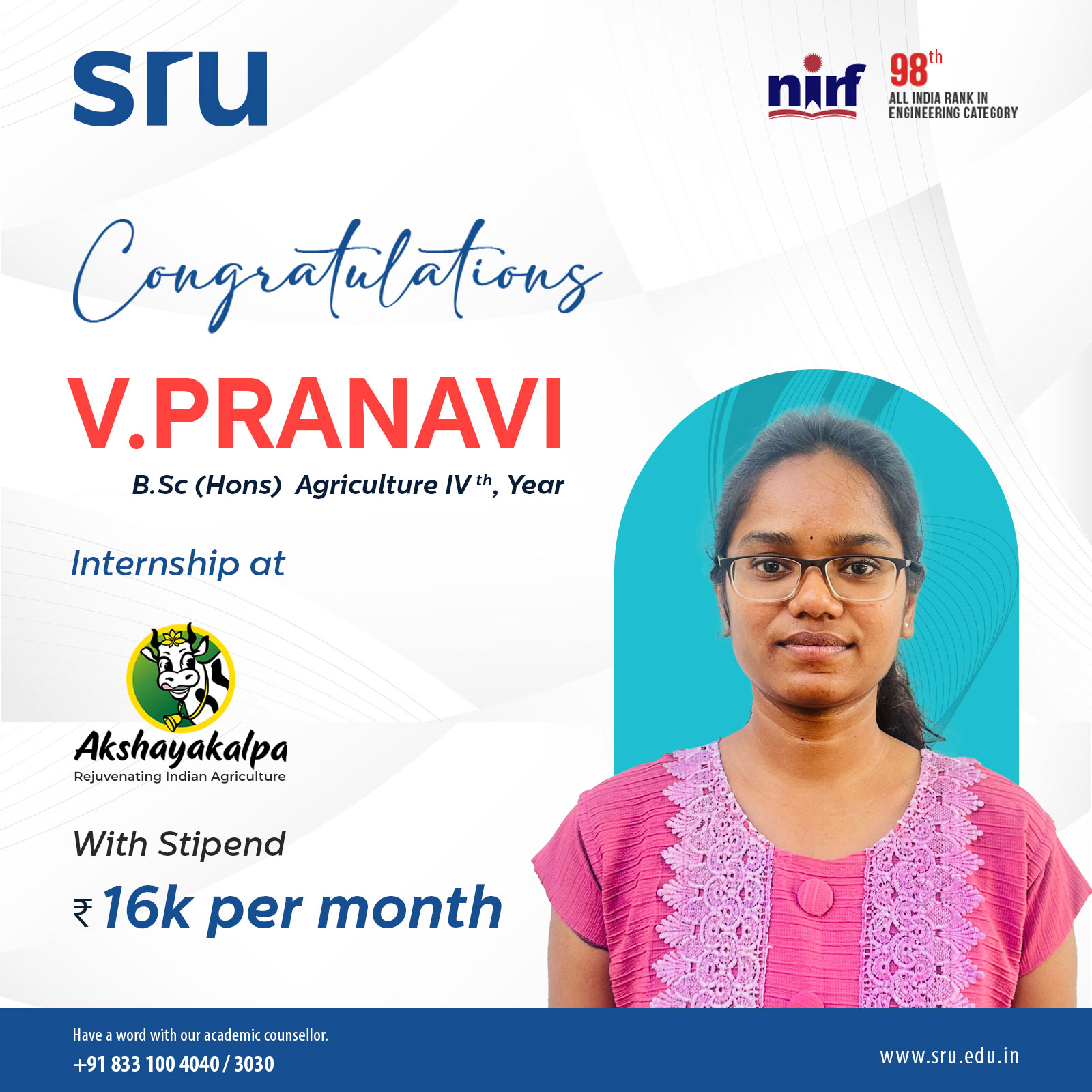
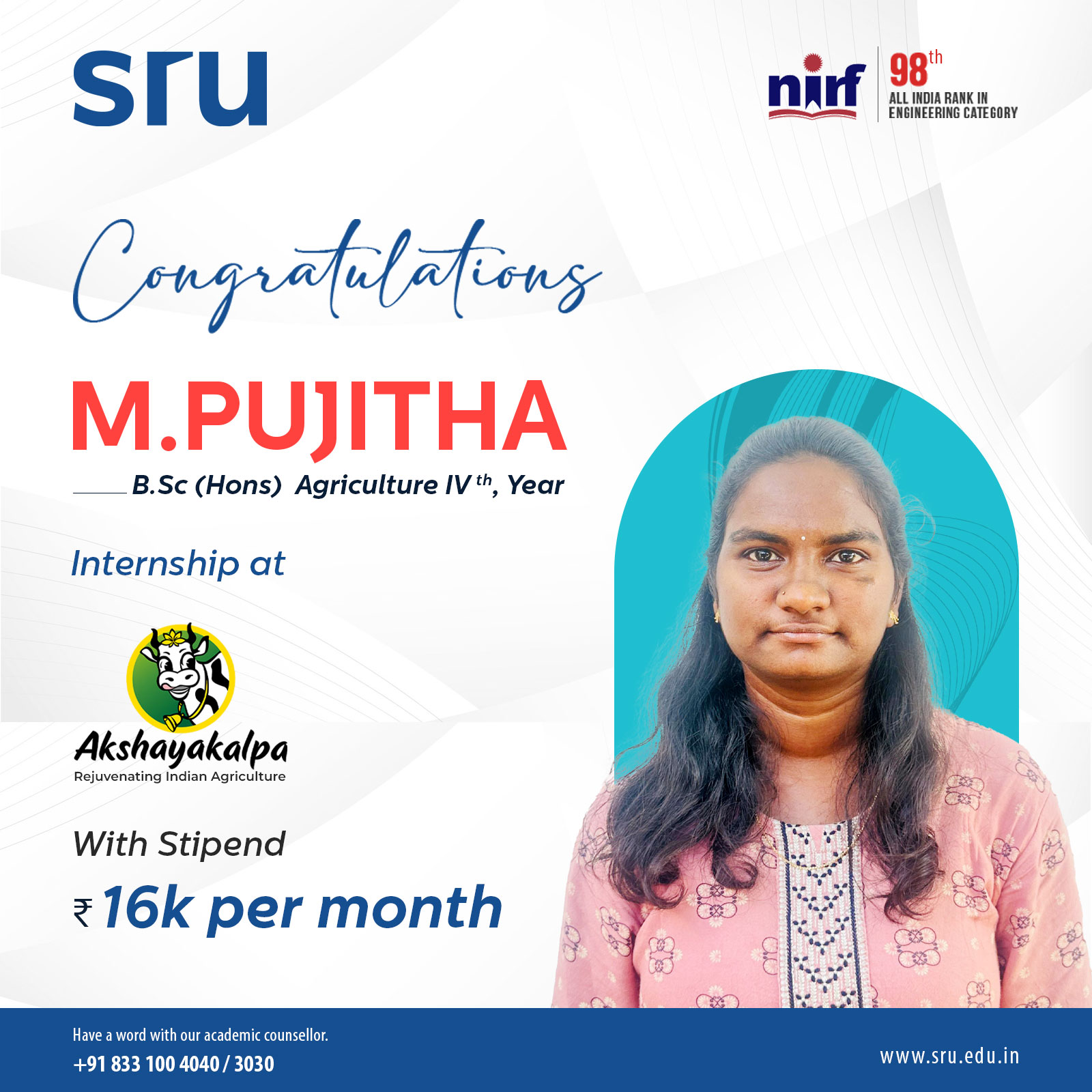
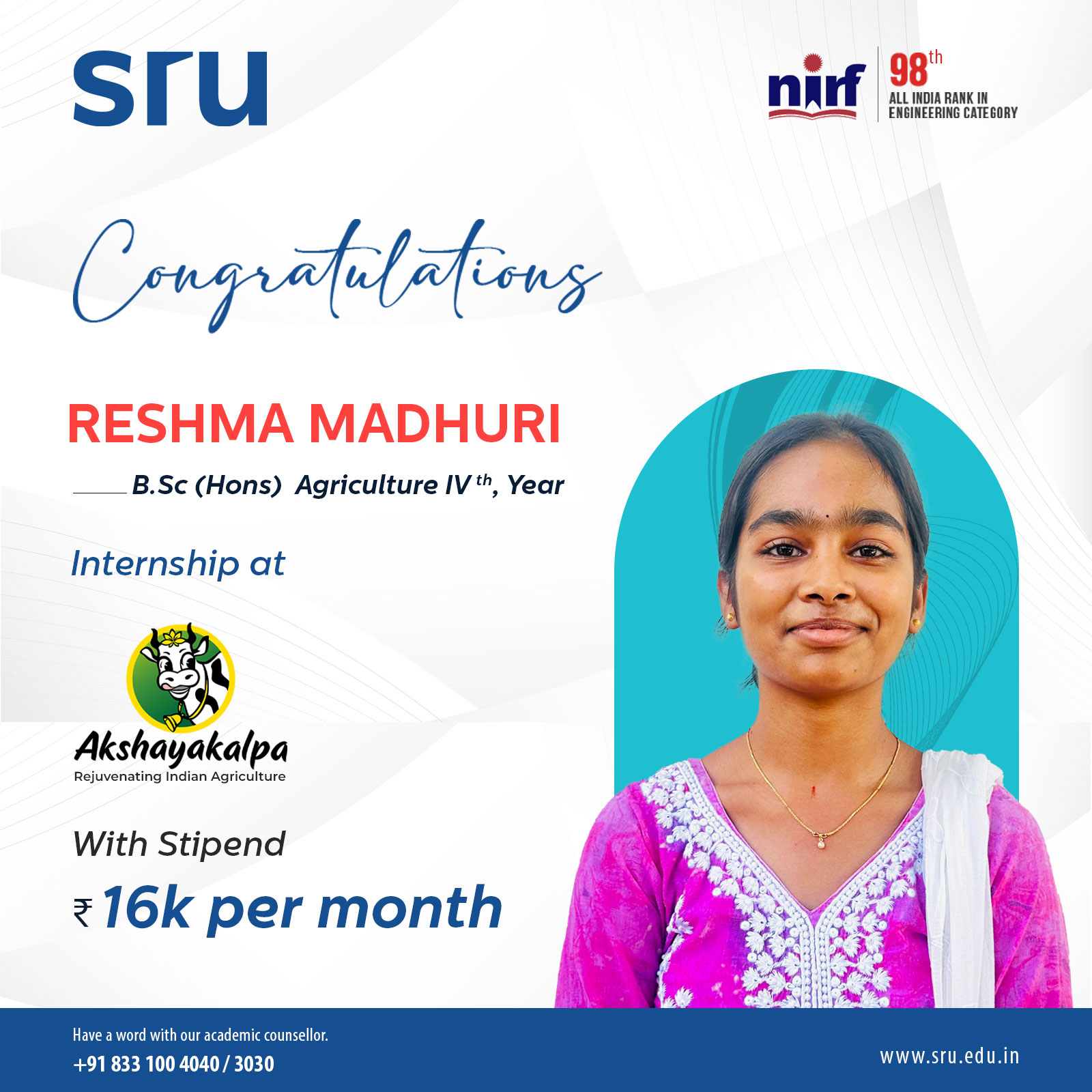
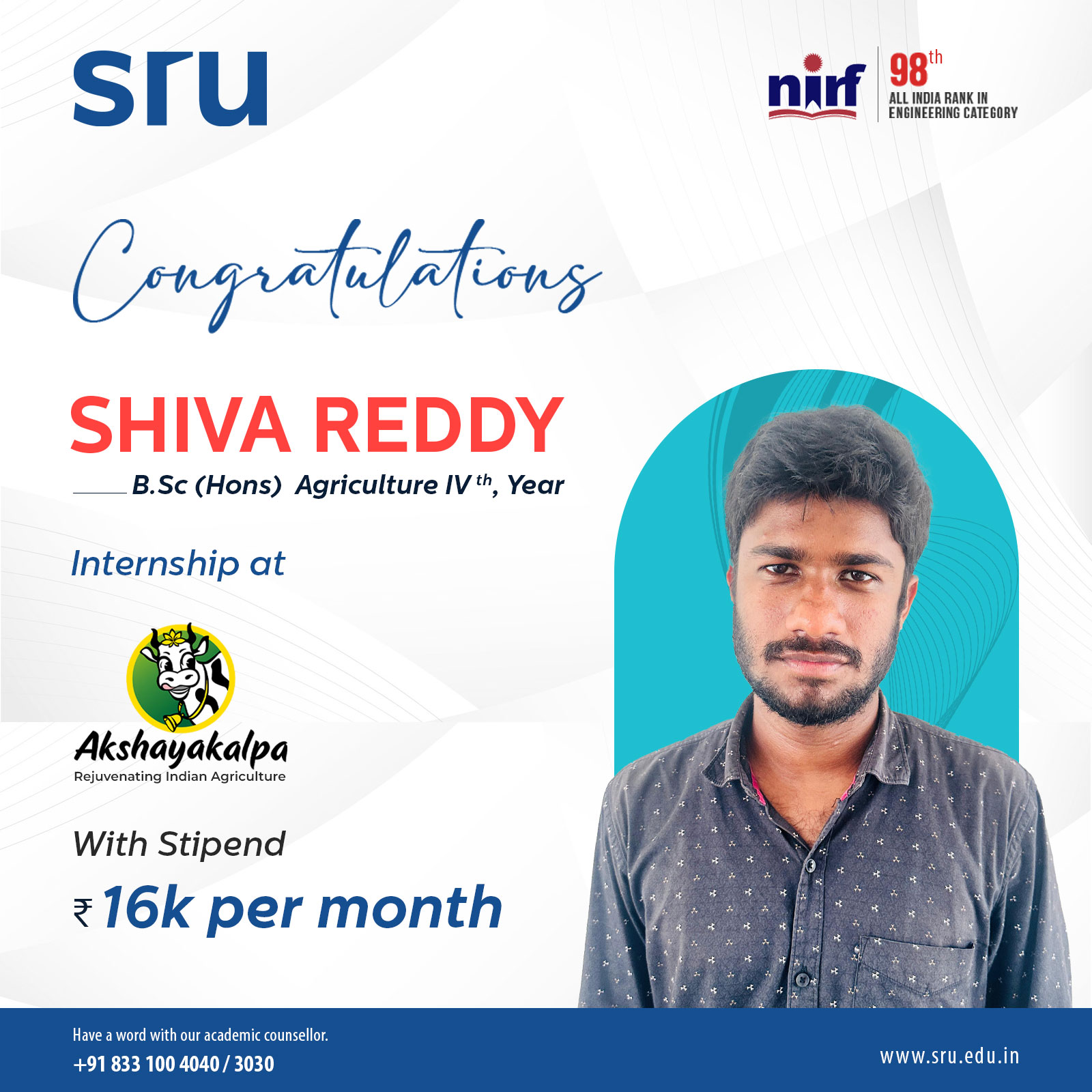
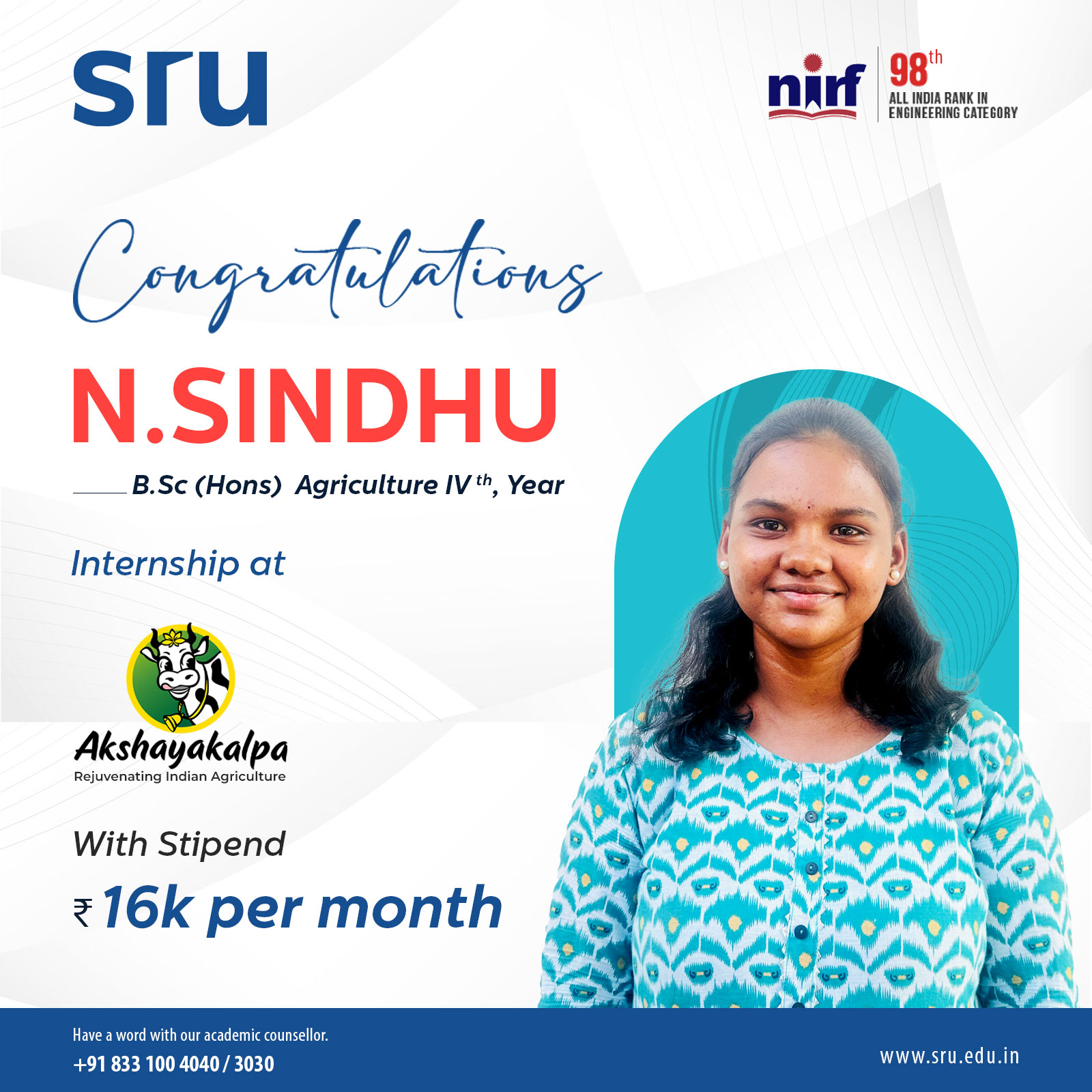
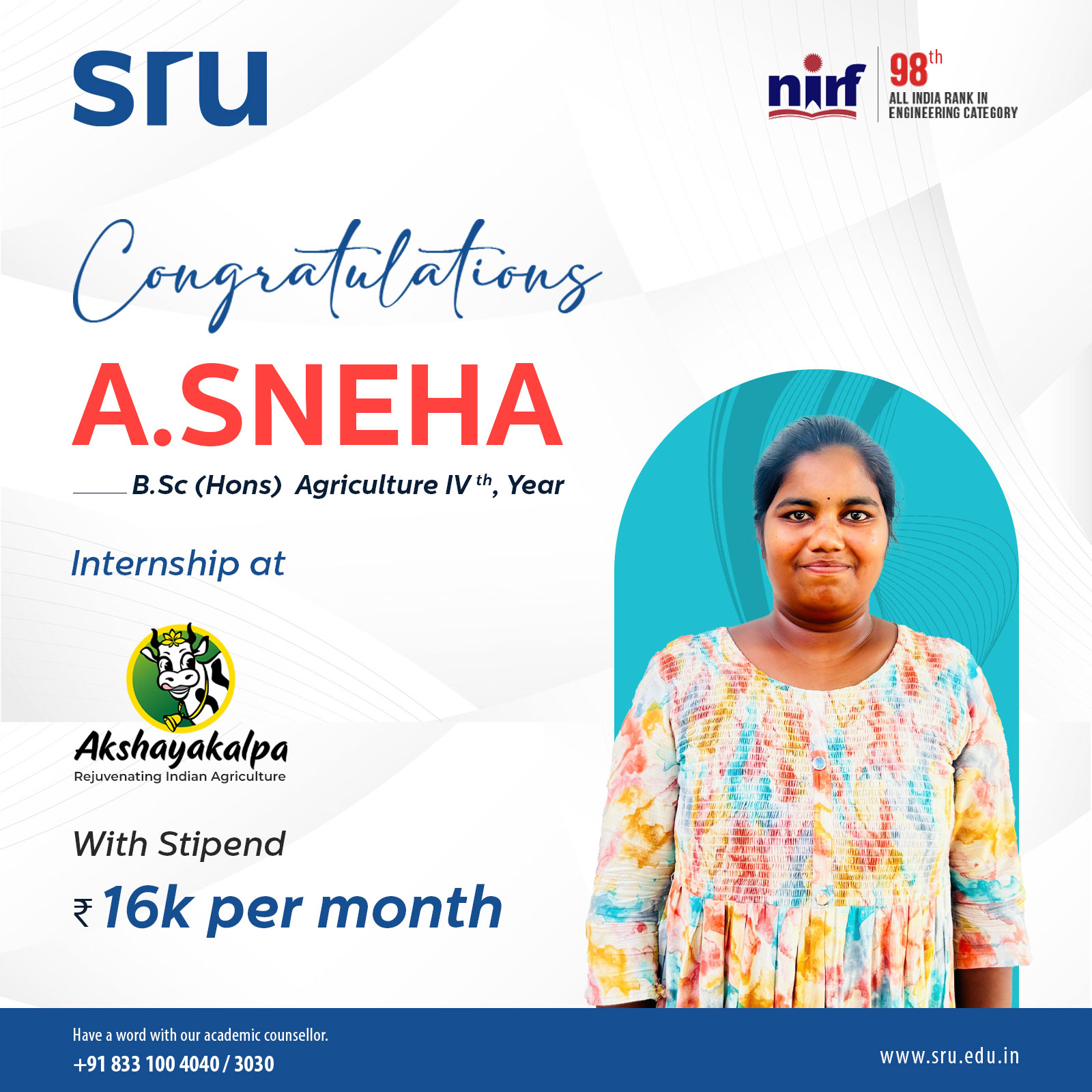
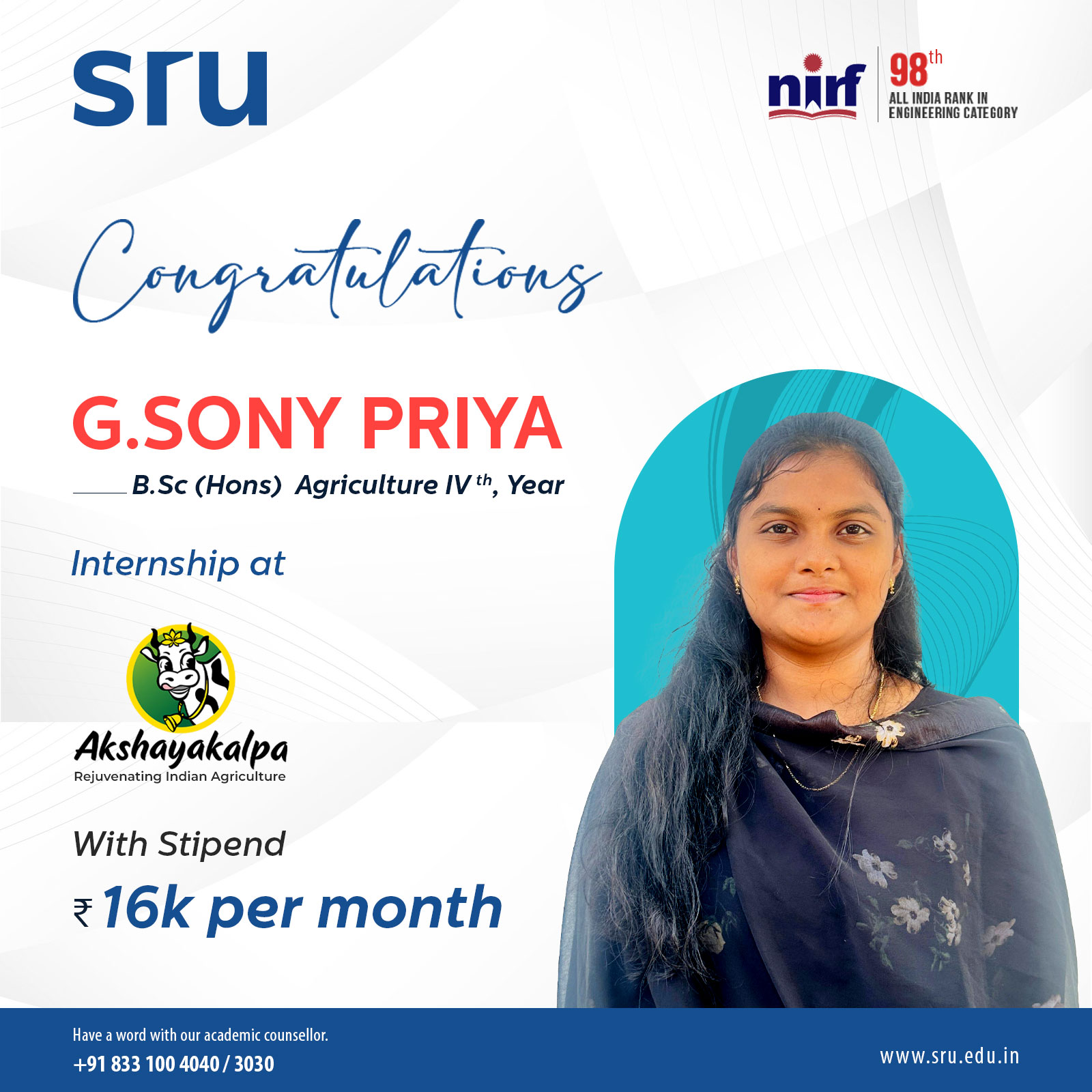

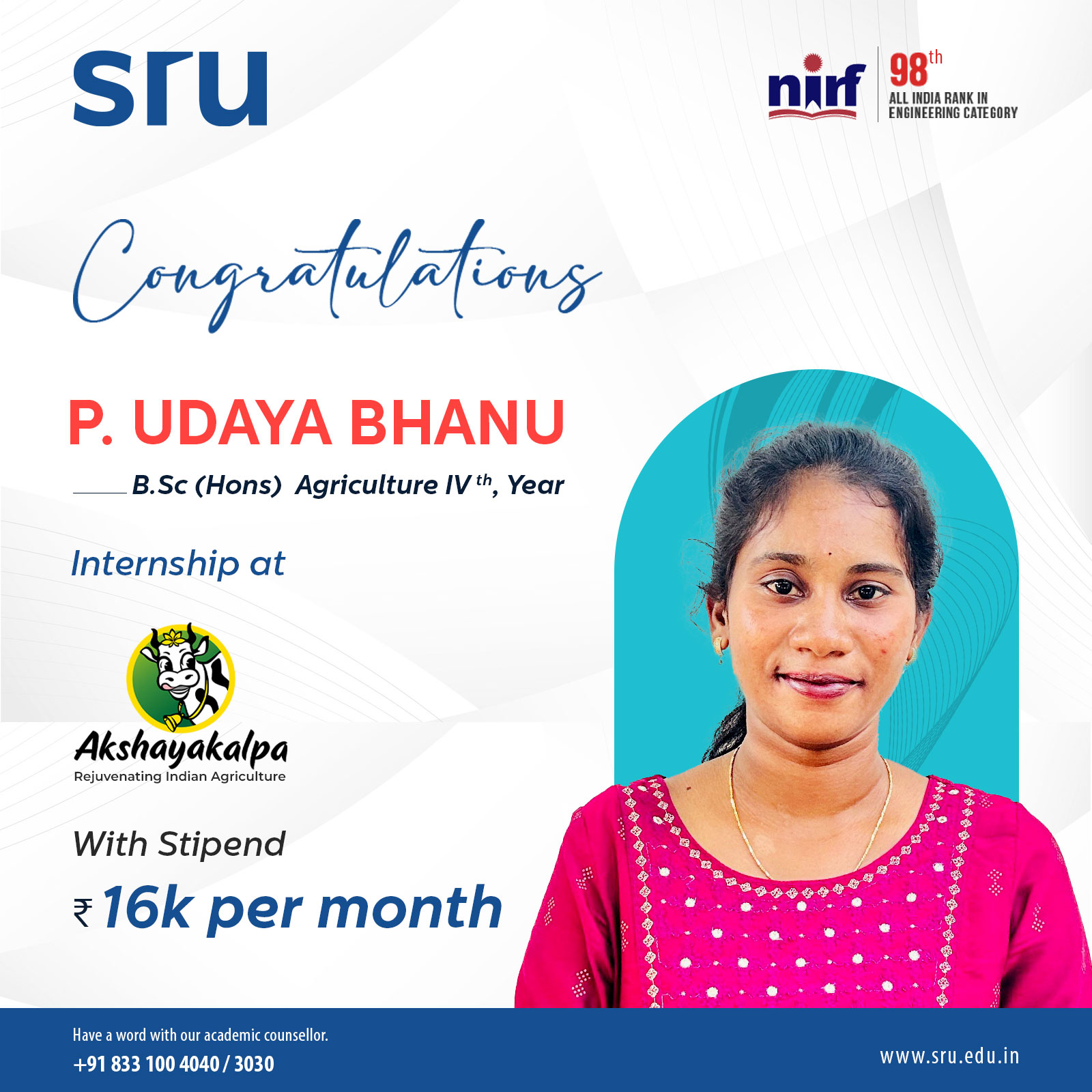
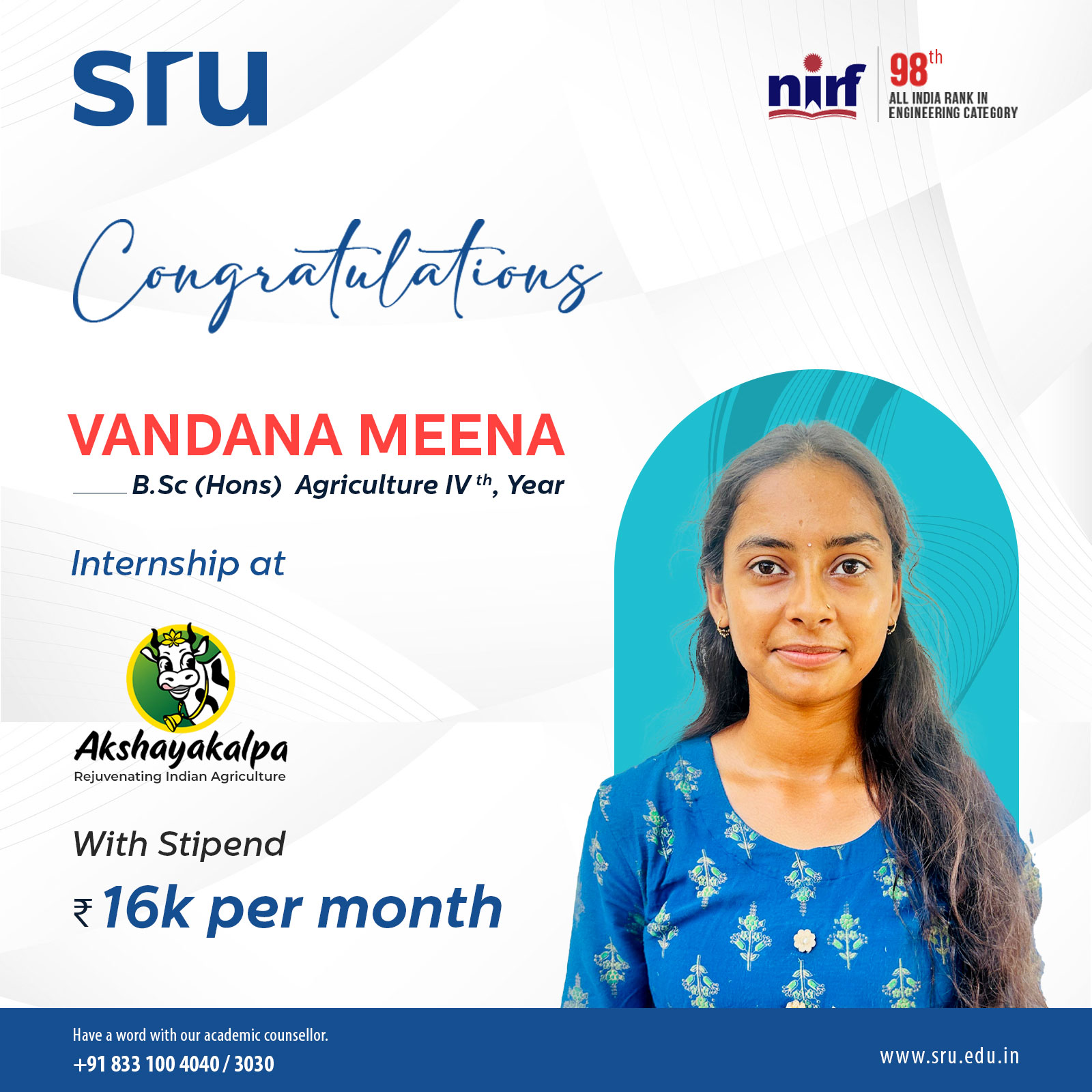
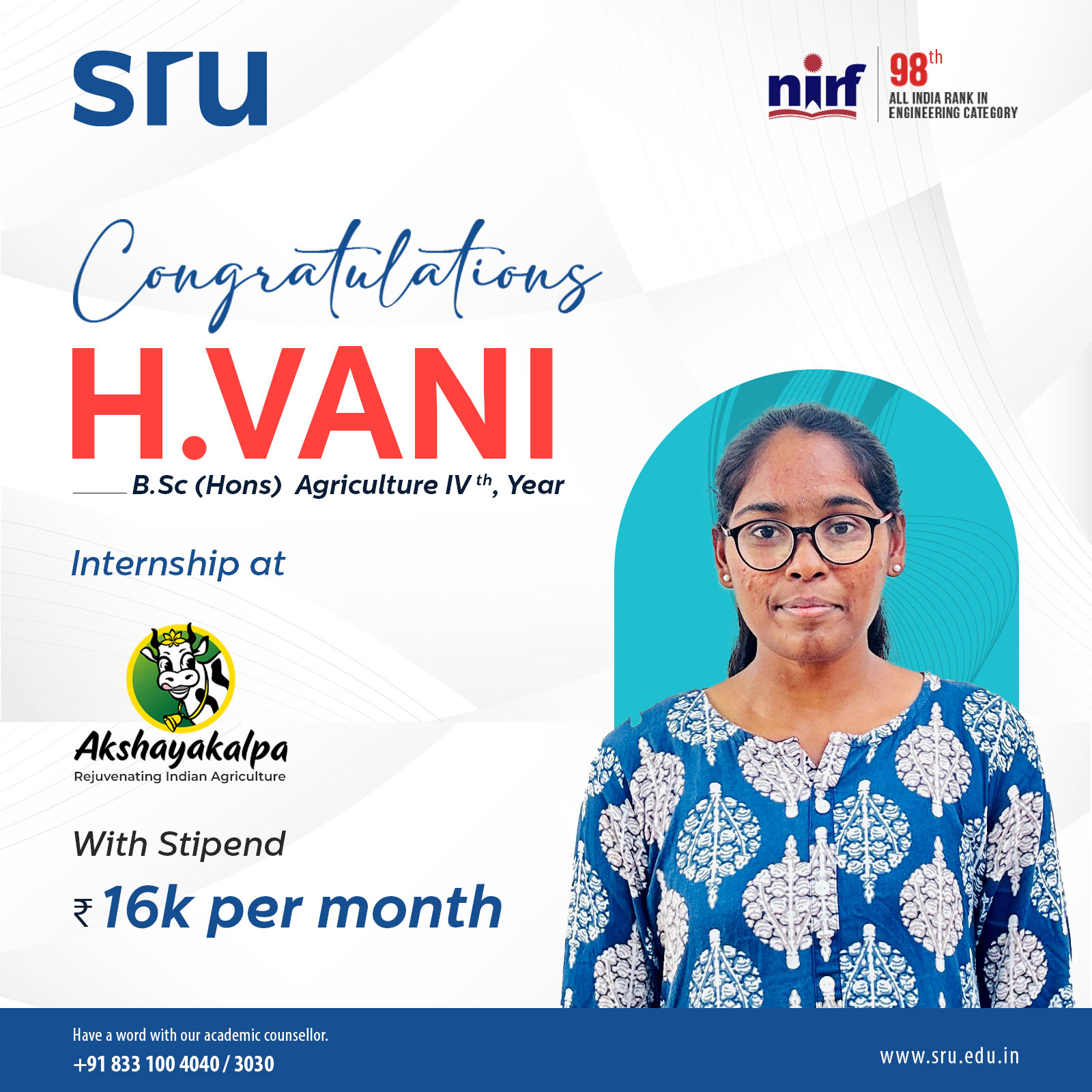
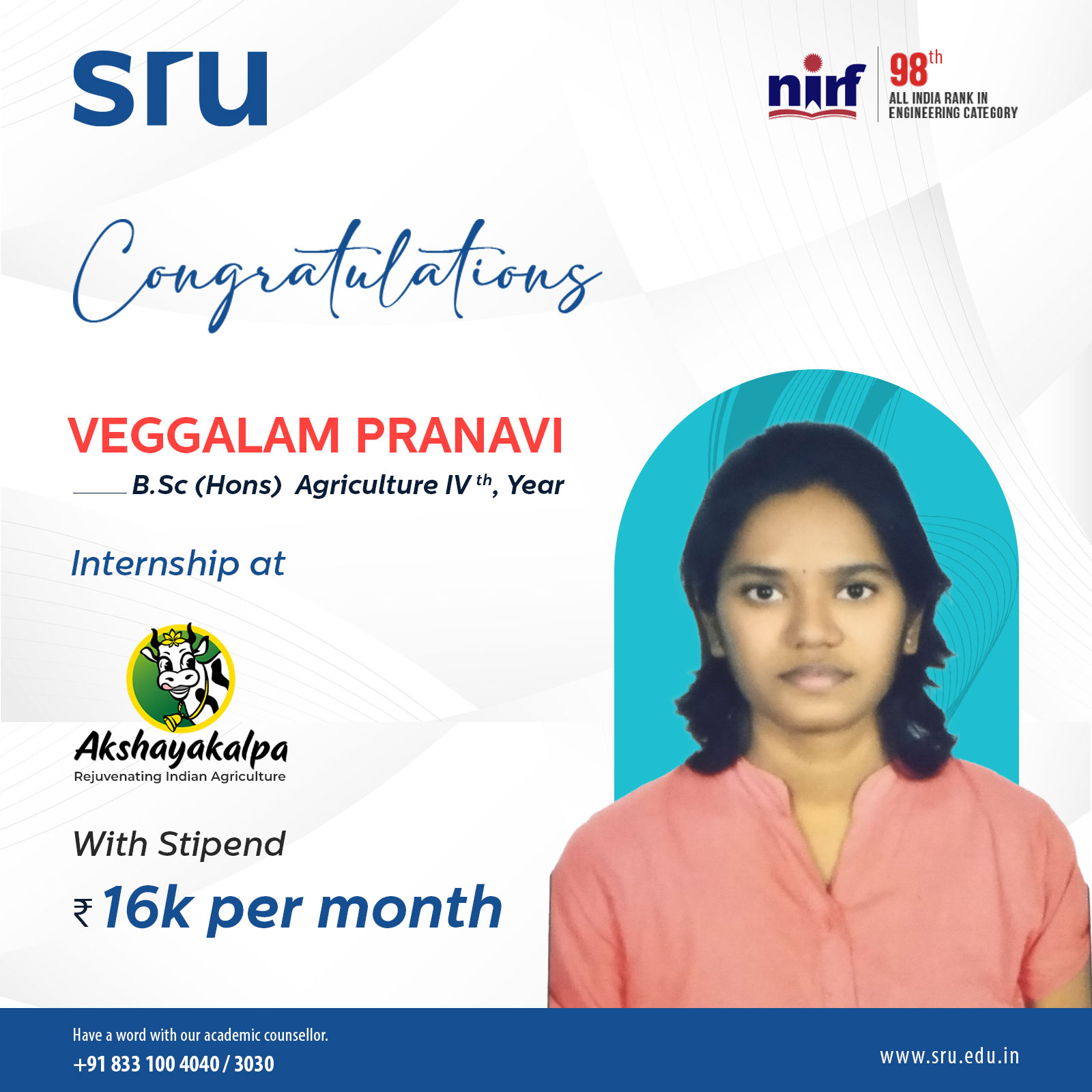
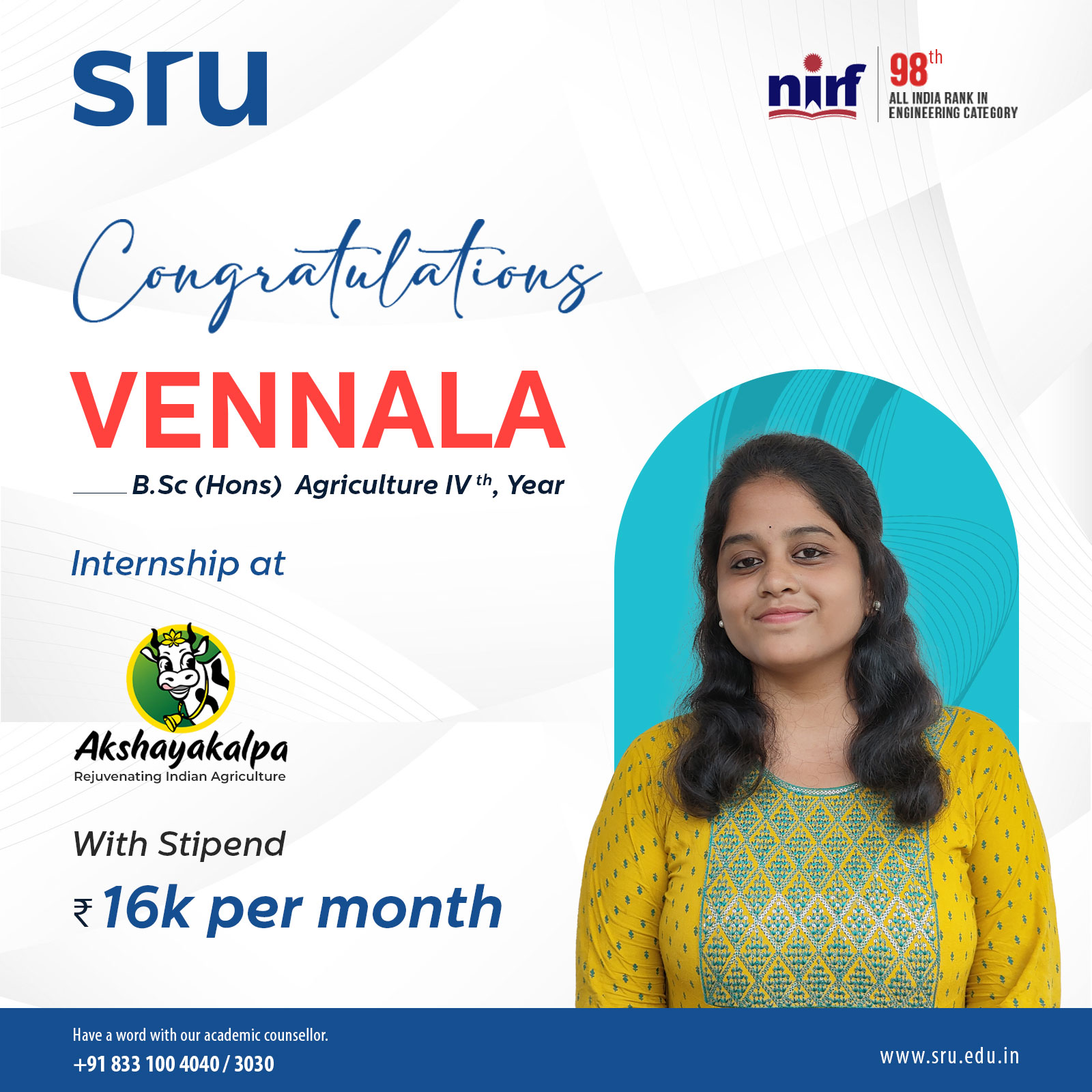
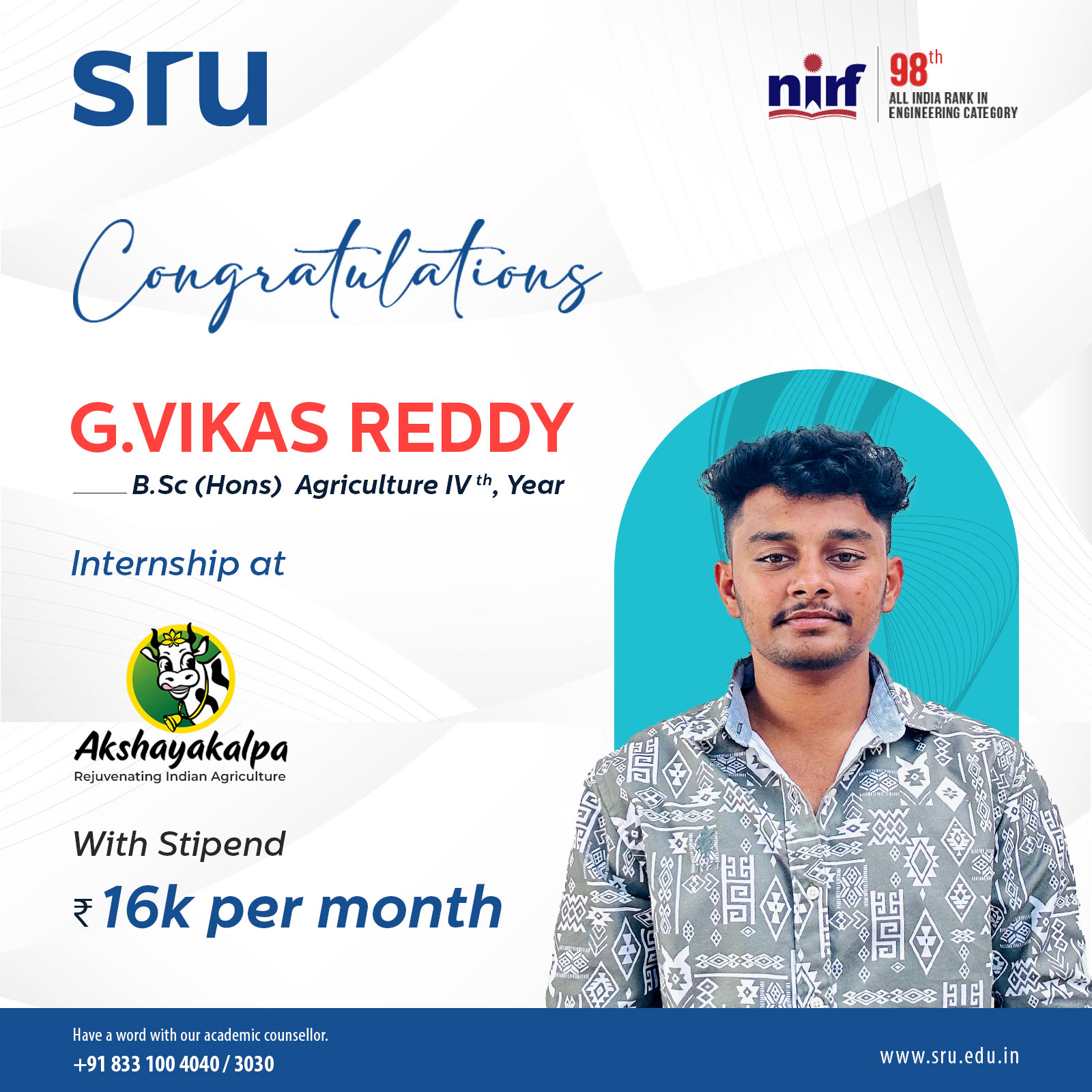
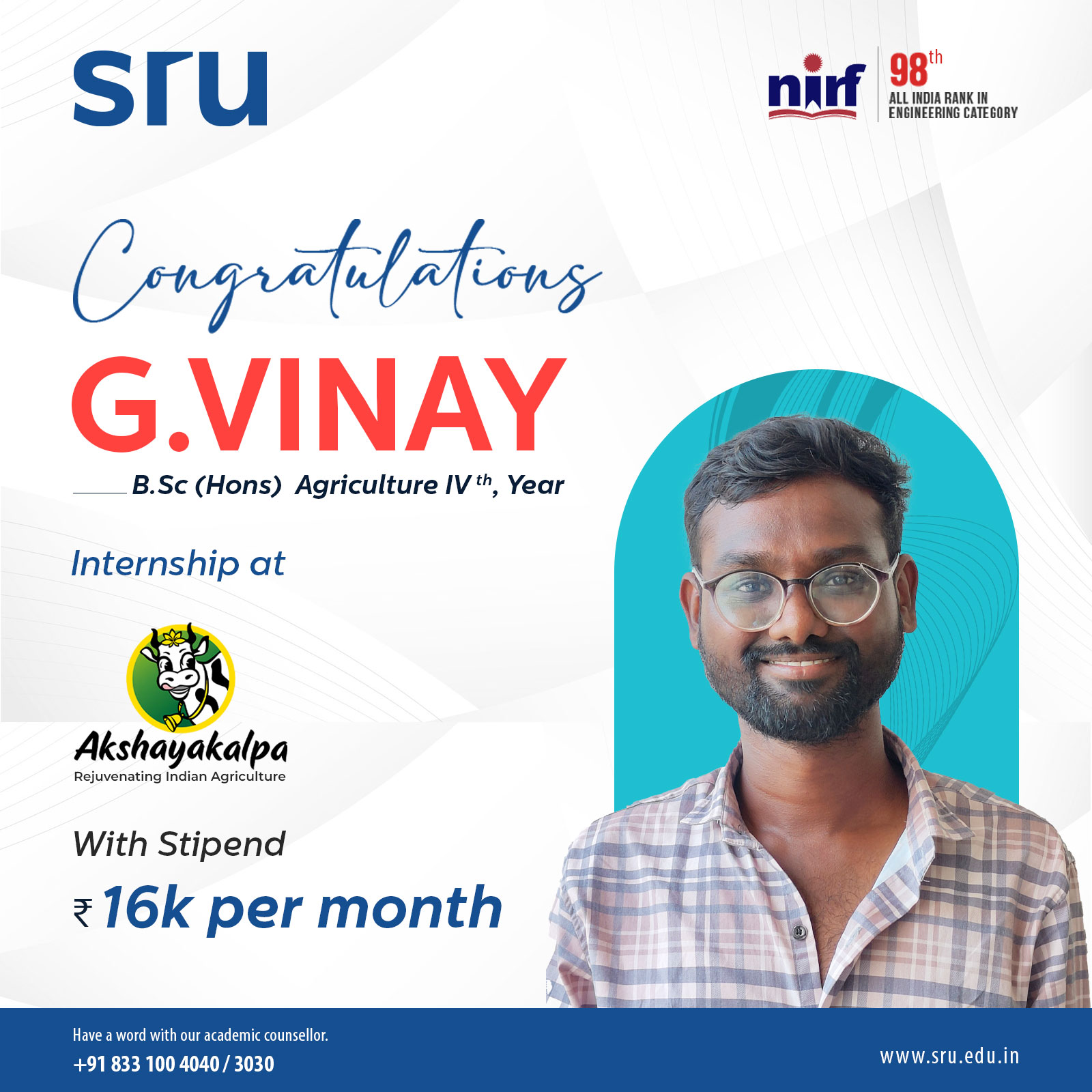
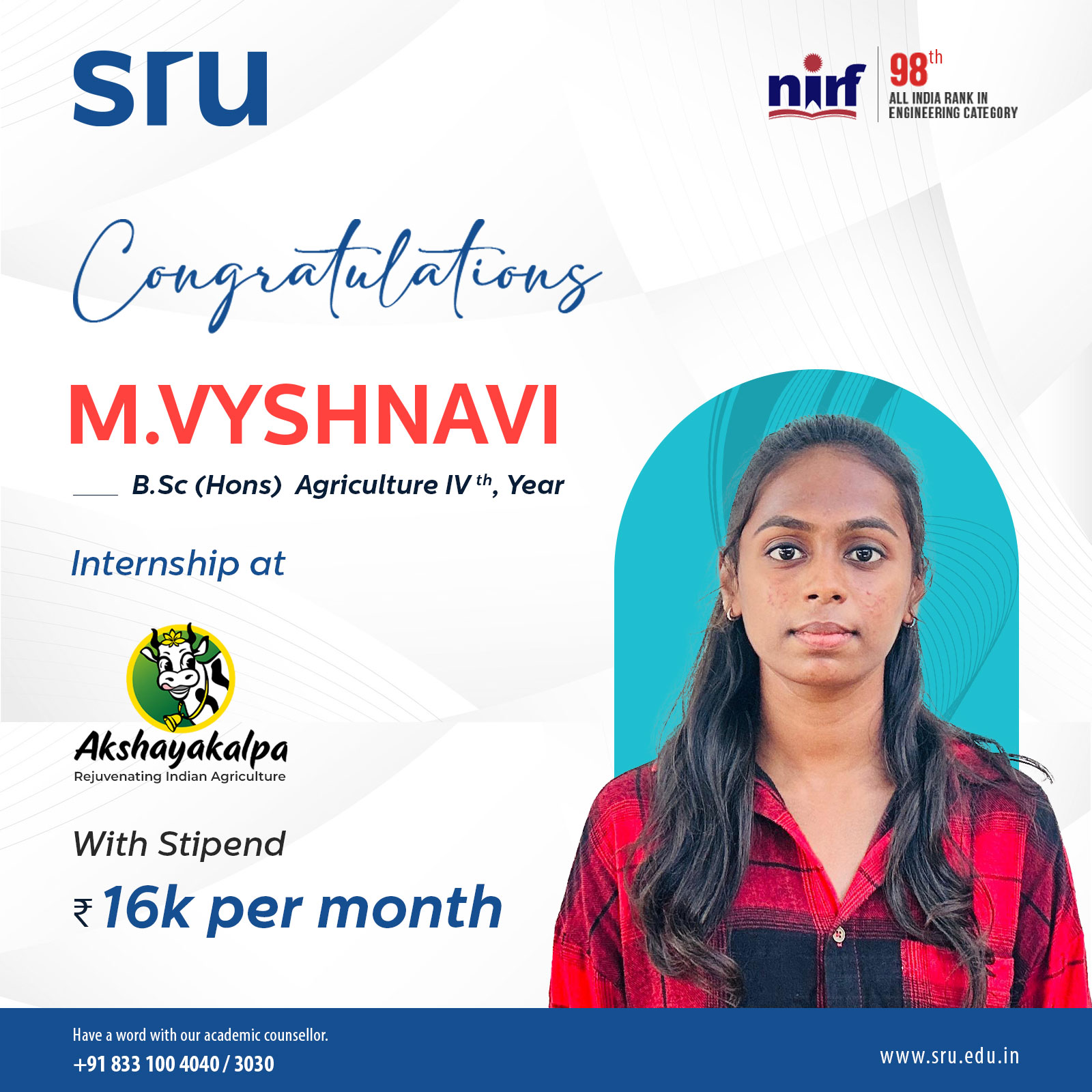
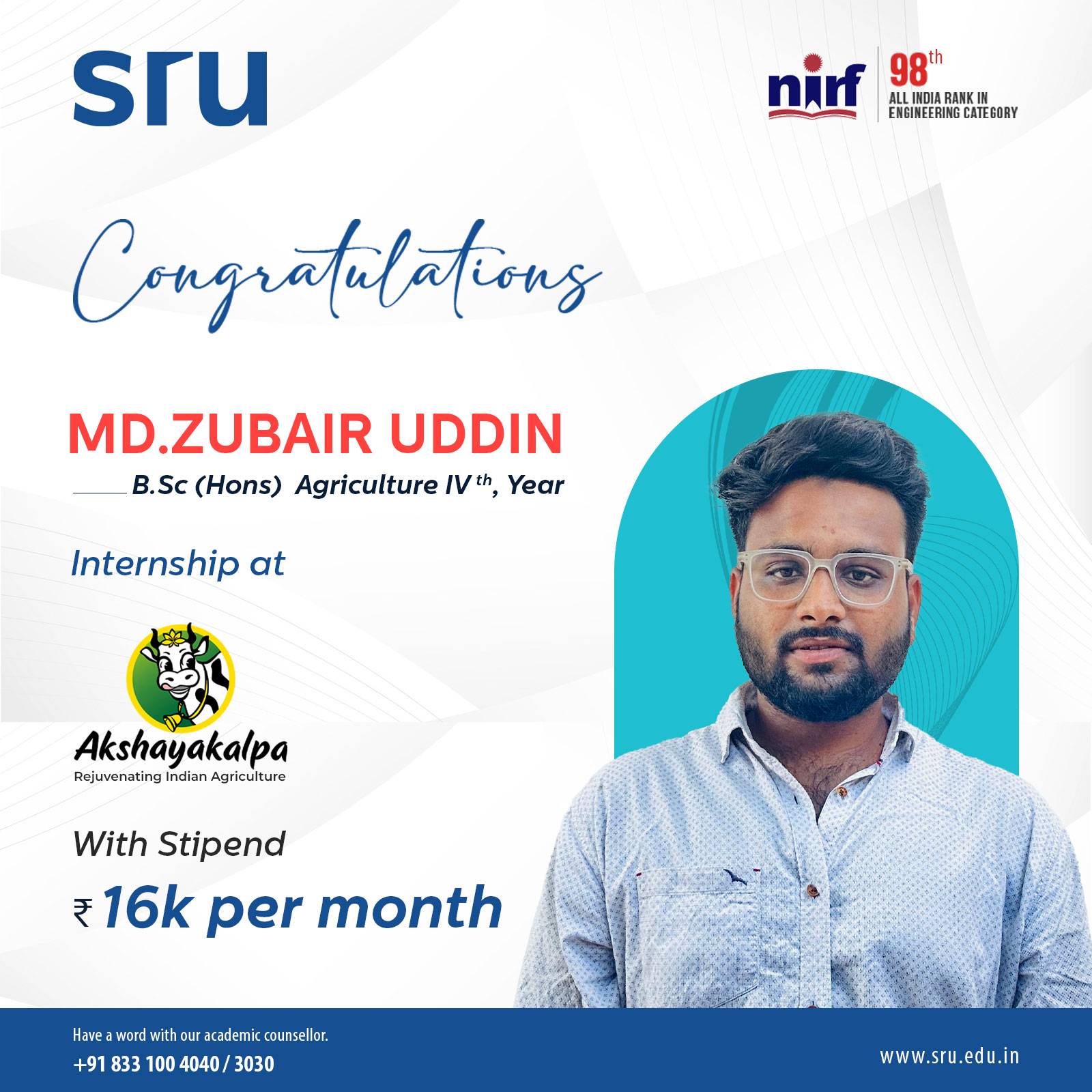










Faculty Achievements
Our faculty members have an impressive record of high-impact publications, patents, funded research, and prestigious awards, reflecting excellence in teaching, research, and innovation. They actively contribute to national and international research collaborations and sponsored projects. Faculty engage in technology development, knowledge transfer, and farmer-centric extension activities. Their research outputs support sustainable agriculture, climate resilience, and agri-enterprise development. This strong research culture enriches teaching quality and student learning outcomes.


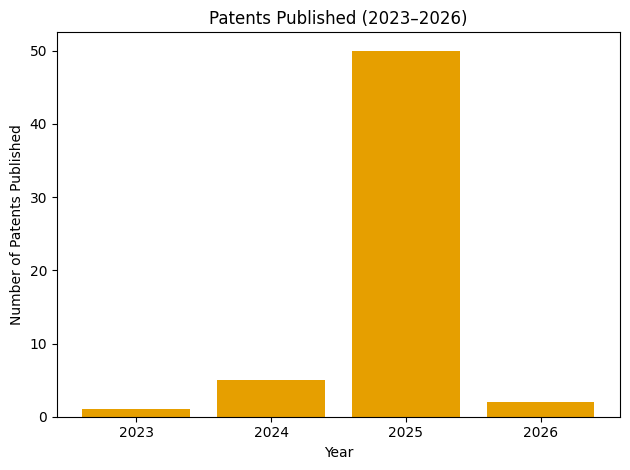










Research paper in MDPI (Q1) Journal

Best Oral Presentation Award, Nagpur

Gold medalist in Post graduation

Felicitation by Sri M.Kodanda ... lture and Farmers Commission
Infrastructure




















